Composers
Item set
- Title
- Composers
- Description
- Shining a Light Composers collection
Items
-
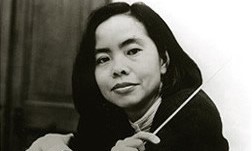 Bun-Ching Lam Described as “alluringly exotic” (The New York Times), and “hauntingly attractive” (San Francisco Chronicle), the music of Bun-Ching Lam has been performed worldwide by such ensembles as the Macao Orchestra, American Composer’s Orchestra, New Jersey Symphony, The Vienna Radio Orchestra, Hong Kong Sinfonietta and the Albany Symphony. Born in Macao, Lam has served as the composer-in-residence of the Macao Orchestra from 2008-2016. She began her piano study in her native city, then further pursued her music education in Hong Kong and the United States. She holds a B.A. degree in Piano Performance from the Chinese University of Hong Kong and a Ph.D. in Music Composition from the University of California at San Diego. She has taught at Cornish College of the Arts in Seattle, and served as Visiting Professor at the Yale University School of Music and at Bennington College. She has been recognized by numerous awards including a Rome Prize, the highest Award at the Shanghai International Composers’ Competition, two NEA grants, fellowships from the American Academy of Arts and Letters, Guggenheim Foundation and the New York Foundation for the Arts. She has received commissions from the American Composers Orchestra, New Jersey Symphony Orchestra, Hong Kong Chinese Orchestra, Macau Orchestra, Chamber Music America, CrossSound Festival, Bang On a Can Festival, Sequitur, Continuum, Ursula Oppens and the Arditti String Quartet. She also served as the Music Alive! Composer-in-Residence with the New Jersey Symphony Orchestra. Bun-Ching Lam’s work has been recorded on Mutable Music, CRI, Tzadik, Nimbus, and Koch International. She now divides her time between Paris and New York.
Bun-Ching Lam Described as “alluringly exotic” (The New York Times), and “hauntingly attractive” (San Francisco Chronicle), the music of Bun-Ching Lam has been performed worldwide by such ensembles as the Macao Orchestra, American Composer’s Orchestra, New Jersey Symphony, The Vienna Radio Orchestra, Hong Kong Sinfonietta and the Albany Symphony. Born in Macao, Lam has served as the composer-in-residence of the Macao Orchestra from 2008-2016. She began her piano study in her native city, then further pursued her music education in Hong Kong and the United States. She holds a B.A. degree in Piano Performance from the Chinese University of Hong Kong and a Ph.D. in Music Composition from the University of California at San Diego. She has taught at Cornish College of the Arts in Seattle, and served as Visiting Professor at the Yale University School of Music and at Bennington College. She has been recognized by numerous awards including a Rome Prize, the highest Award at the Shanghai International Composers’ Competition, two NEA grants, fellowships from the American Academy of Arts and Letters, Guggenheim Foundation and the New York Foundation for the Arts. She has received commissions from the American Composers Orchestra, New Jersey Symphony Orchestra, Hong Kong Chinese Orchestra, Macau Orchestra, Chamber Music America, CrossSound Festival, Bang On a Can Festival, Sequitur, Continuum, Ursula Oppens and the Arditti String Quartet. She also served as the Music Alive! Composer-in-Residence with the New Jersey Symphony Orchestra. Bun-Ching Lam’s work has been recorded on Mutable Music, CRI, Tzadik, Nimbus, and Koch International. She now divides her time between Paris and New York. -
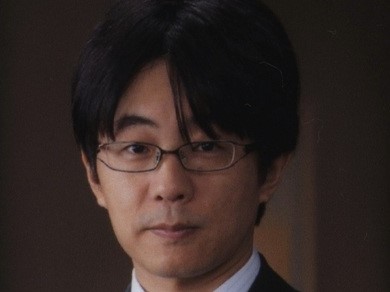 Jun Nagao Jun Nagao (Japanese: 長生 淳; born March 1, 1964) is a Japanese composer. Nagao began his career as an arranger for orchestras and wind ensembles. Today he is known for his many original compositions including several works for video games and films. He won the 2000 Toru Takemitsu Composition Award for his work entitled L'été-L'oubli rouge.
Jun Nagao Jun Nagao (Japanese: 長生 淳; born March 1, 1964) is a Japanese composer. Nagao began his career as an arranger for orchestras and wind ensembles. Today he is known for his many original compositions including several works for video games and films. He won the 2000 Toru Takemitsu Composition Award for his work entitled L'été-L'oubli rouge. -
 Gabriela Ortiz Latin Grammy-nominated Gabriela Ortiz is one of the foremost composers in Mexico today and one of the most vibrant musicians emerging on the international scene. Her musical language achieves an extraordinary and expressive synthesis of tradition and the avant-garde by combining high art, folk music and jazz in novel, frequently refined and always personal ways. Her compositions are credited for being both entertaining and immediate as well as profound and sophisticated; she achieves a balance between highly organized structure and improvisatory spontaneity. Gustavo Dudamel, the conductor of the Los Angeles Philharmonic, called her recent work Téenek “one of the most brilliant I have ever directed. Its color, its texture, the harmony and the rhythm that it contains are all something unique. Gabriela possesses a particular capacity to showcase our Latin identity.” Ortiz has written music for dance, theater and cinema, and has actively collaborated with poets, playwrights, and historians. Indeed, her creative process focuses on the connections between gender issues, social justice, environmental concerns and the burden of racism, as well as the phenomenon of multiculturality caused by globalization, technological development, and mass migrations. She has composed three operas, in all of which interdisciplinary collaboration has been a vital experience. Notably, these operas are framed by political contexts of great complexity, such as the drug war in Only the Truth, illegal migration between Mexico and the United States in Ana and her Shadow, and the violation of university autonomy during the student movement of 1968 in Firefly. Based in Mexico, Ortiz’s music has been commissioned and performed all over the world by prestigious ensembles, soloists and orchestras, such as: the Los Angeles Philharmonic Orchestra, Gustavo Dudamel and Esa Pekka Salonen, Zoltan Kocsis, Carlos Miguel Prieto, the Kroumata and Amadinda Percussion Ensembles, the Kronos Quartet, Dawn Upshaw, Sarah Leonard, the Cuarteto Latinoamericano, Pierre Amoyal, Southwest Chamber Music, the Tambuco Percussion Quartet, the Hungarian Philharmonic Orchestra, the Malmo Symphony Orchestra, the Orquestra Simón Bolivar, the Royal Scottish National Orchestra, the BBC Scottish Symphony Orchestra, and the Royal Liverpool Philharmonic Orchestra, among others. Recent premieres include: Yanga and Téenek, both pieces commissioned by the Los Angeles Philharmonic and Gustavo Dudamel, Luciérnaga (Firefly, her third opera) commissioned and produced by the Universidad Nacional Autónoma de México, Únicamente la Verdad (Only the Truth, her first opera) with Long Beach Opera and Opera de Bellas Artes in Mexico. Ortiz has been honored with the National Prize for Arts and Literature, the most prestigious award for writers and artists granted by the government of Mexico, and has been inducted into the Mexican Academy of the Arts. Other honors include: the Bellagio Center Residency Program, Civitella Ranieri Artistic Residency; a John Simon Guggenheim Memorial Foundation Fellowship; a Fulbright Fellowship; first prize in the Silvestre Revueltas National Chamber Music Competition; first prize in the Alicia Urreta Composition Competition; a Banff Center for the Arts Residency; the Inroads Commission (a program of Arts International with funds from the Ford Foundation); a grant from the Rockefeller Foundation; and the Mozart Medal Award. Born in Mexico City, her parents were musicians in the renowned folk music ensemble Los Folkloristas, founded in 1966 to preserve and record the traditional music of Mexico and Latin America. She trained with the eminent composer Mario Lavista at the Conservatorio Nacional de Música and Federico Ibarra at the Universidad Nacional Autónoma de México. In 1990 she was awarded the British Council Fellowship to study in London with Robert Saxton at The Guildhall School of Music and Drama. In 1992 she received a scholarship from the UNAM to complete her Ph.D. studies in electroacoustic music composition with Simon Emmerson at The City University in London. Ortiz currently teaches composition at the Universidad Nacional Autónoma de México in Mexico City and as a Visiting Professor at Indiana University. Her music is currently published by Schott, Ediciones Mexicanas de Música, Saxiana Presto, and Tre Fontane.
Gabriela Ortiz Latin Grammy-nominated Gabriela Ortiz is one of the foremost composers in Mexico today and one of the most vibrant musicians emerging on the international scene. Her musical language achieves an extraordinary and expressive synthesis of tradition and the avant-garde by combining high art, folk music and jazz in novel, frequently refined and always personal ways. Her compositions are credited for being both entertaining and immediate as well as profound and sophisticated; she achieves a balance between highly organized structure and improvisatory spontaneity. Gustavo Dudamel, the conductor of the Los Angeles Philharmonic, called her recent work Téenek “one of the most brilliant I have ever directed. Its color, its texture, the harmony and the rhythm that it contains are all something unique. Gabriela possesses a particular capacity to showcase our Latin identity.” Ortiz has written music for dance, theater and cinema, and has actively collaborated with poets, playwrights, and historians. Indeed, her creative process focuses on the connections between gender issues, social justice, environmental concerns and the burden of racism, as well as the phenomenon of multiculturality caused by globalization, technological development, and mass migrations. She has composed three operas, in all of which interdisciplinary collaboration has been a vital experience. Notably, these operas are framed by political contexts of great complexity, such as the drug war in Only the Truth, illegal migration between Mexico and the United States in Ana and her Shadow, and the violation of university autonomy during the student movement of 1968 in Firefly. Based in Mexico, Ortiz’s music has been commissioned and performed all over the world by prestigious ensembles, soloists and orchestras, such as: the Los Angeles Philharmonic Orchestra, Gustavo Dudamel and Esa Pekka Salonen, Zoltan Kocsis, Carlos Miguel Prieto, the Kroumata and Amadinda Percussion Ensembles, the Kronos Quartet, Dawn Upshaw, Sarah Leonard, the Cuarteto Latinoamericano, Pierre Amoyal, Southwest Chamber Music, the Tambuco Percussion Quartet, the Hungarian Philharmonic Orchestra, the Malmo Symphony Orchestra, the Orquestra Simón Bolivar, the Royal Scottish National Orchestra, the BBC Scottish Symphony Orchestra, and the Royal Liverpool Philharmonic Orchestra, among others. Recent premieres include: Yanga and Téenek, both pieces commissioned by the Los Angeles Philharmonic and Gustavo Dudamel, Luciérnaga (Firefly, her third opera) commissioned and produced by the Universidad Nacional Autónoma de México, Únicamente la Verdad (Only the Truth, her first opera) with Long Beach Opera and Opera de Bellas Artes in Mexico. Ortiz has been honored with the National Prize for Arts and Literature, the most prestigious award for writers and artists granted by the government of Mexico, and has been inducted into the Mexican Academy of the Arts. Other honors include: the Bellagio Center Residency Program, Civitella Ranieri Artistic Residency; a John Simon Guggenheim Memorial Foundation Fellowship; a Fulbright Fellowship; first prize in the Silvestre Revueltas National Chamber Music Competition; first prize in the Alicia Urreta Composition Competition; a Banff Center for the Arts Residency; the Inroads Commission (a program of Arts International with funds from the Ford Foundation); a grant from the Rockefeller Foundation; and the Mozart Medal Award. Born in Mexico City, her parents were musicians in the renowned folk music ensemble Los Folkloristas, founded in 1966 to preserve and record the traditional music of Mexico and Latin America. She trained with the eminent composer Mario Lavista at the Conservatorio Nacional de Música and Federico Ibarra at the Universidad Nacional Autónoma de México. In 1990 she was awarded the British Council Fellowship to study in London with Robert Saxton at The Guildhall School of Music and Drama. In 1992 she received a scholarship from the UNAM to complete her Ph.D. studies in electroacoustic music composition with Simon Emmerson at The City University in London. Ortiz currently teaches composition at the Universidad Nacional Autónoma de México in Mexico City and as a Visiting Professor at Indiana University. Her music is currently published by Schott, Ediciones Mexicanas de Música, Saxiana Presto, and Tre Fontane. -
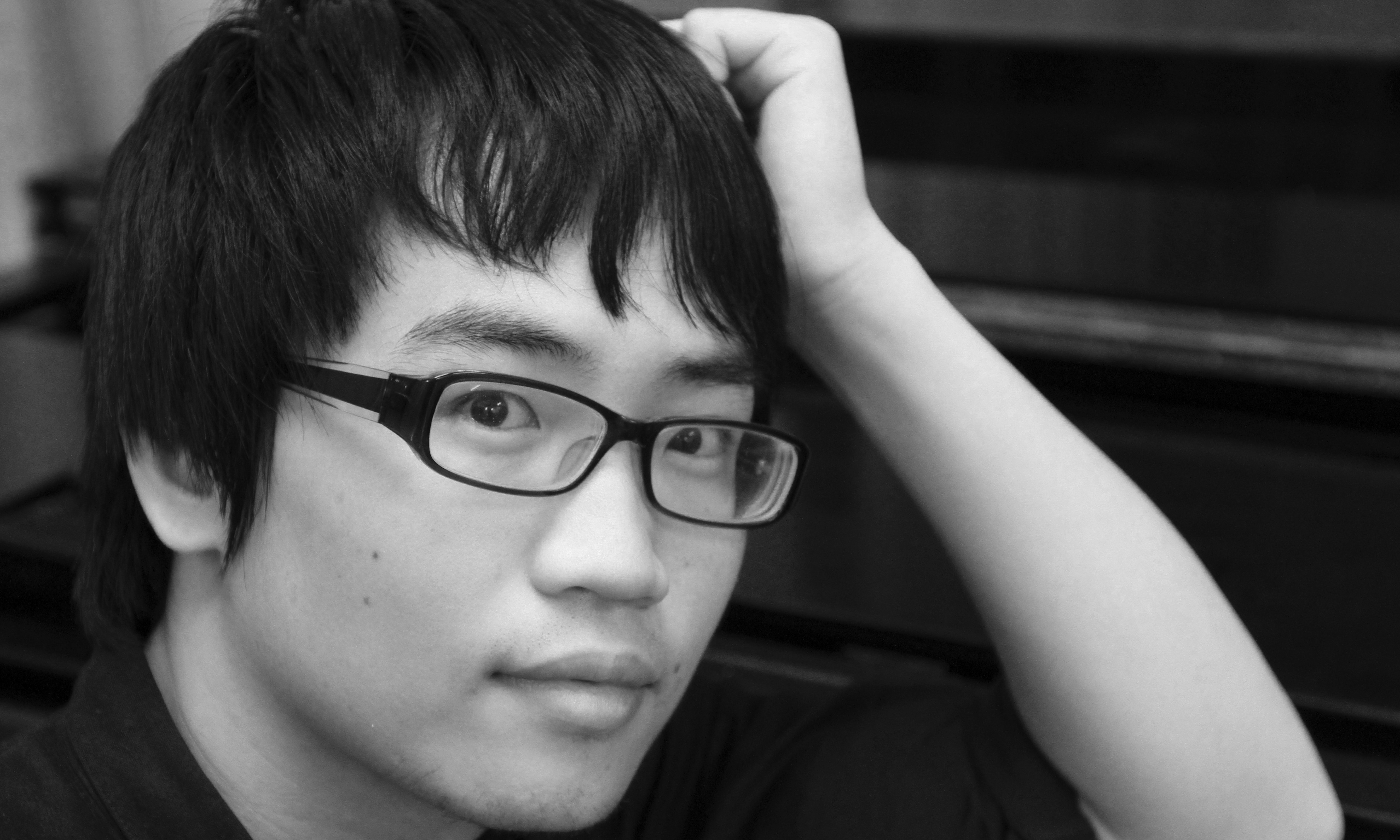 Liu Li Li Liu, Chinese young composer, was born in Sichuan province. In 2004, he was admitted to Central Conservatory of Music with excellent marks and was offered scholarship at the same time. Under the tutelage of professor Xiaogang Ye, his composition was awarded in contest. In resent years, he often accept commissioned work including symphony, chamber music, Chinese traditional music, solo piece and other movie music.
Liu Li Li Liu, Chinese young composer, was born in Sichuan province. In 2004, he was admitted to Central Conservatory of Music with excellent marks and was offered scholarship at the same time. Under the tutelage of professor Xiaogang Ye, his composition was awarded in contest. In resent years, he often accept commissioned work including symphony, chamber music, Chinese traditional music, solo piece and other movie music. -
 Vache Sharafyan One of the major composers in Armenia, but also internationally Vache Sharafyan is the author of more than ninety compositions including symphonic works, chamber music, choral, vocal music including the opera "King Abgar", ballets "Another Moon", "Ancient Gods", "the bride of the deserrt". Sharafyan's music is widely performed in his native country but also in the most prestigious international halls in USA, Italy, Israel, Russia France Canada, Ukraine, Georgia, Germany, Austria, Belgium, Holland, Thailand, Lebanon, Hungary, Switzerland, Spain, Taiwan, Japan, Scotland, Mexico, Poland, Ireland, England, Iceland, Latvia, Greece, Cyprus, Poland and Sweden. It is also invited many contemporary music festivals whether in the US or Europe. Praised as " stark, mysterious and ultimately majestic " by The New York Times, " complex, deliberate, ultimately captivating " by Boston Globe, " ingenious... , kaleidoscope of iridescent timbres..., magical " by The Strad, "fascinating and expressive" by David Harringtone /Kronos Quartet/, the works of Sharafyan were commissioned - performed by outstanding musicians such as Yo- Yo Ma and "Silk Road Ensemble", Yuri Bashmet and The Ensemble "Soloists of Moscow", The Hilliard Ensemble, Boston Modern Orchestra Project and Gil Rose, Suren Bagratuni, Mario Brunello, Narek Hakhnazaryan, Alexander CHaushian, Movses Pogossian, George Pehlivanian, Dresdner Sinfoniker, Andrea Molino, Premil Petrovic, The Metropolitan Museum of Arts (2018), OSS, Karen Durgaryan, Mansfield Symphony, Rostok Philharmonics, Thuringer Symphony, Soli Deo Gloria Psalm project, NCOA, APO & Eduard Topchjan, , Sion Festival to mention a very few.
Vache Sharafyan One of the major composers in Armenia, but also internationally Vache Sharafyan is the author of more than ninety compositions including symphonic works, chamber music, choral, vocal music including the opera "King Abgar", ballets "Another Moon", "Ancient Gods", "the bride of the deserrt". Sharafyan's music is widely performed in his native country but also in the most prestigious international halls in USA, Italy, Israel, Russia France Canada, Ukraine, Georgia, Germany, Austria, Belgium, Holland, Thailand, Lebanon, Hungary, Switzerland, Spain, Taiwan, Japan, Scotland, Mexico, Poland, Ireland, England, Iceland, Latvia, Greece, Cyprus, Poland and Sweden. It is also invited many contemporary music festivals whether in the US or Europe. Praised as " stark, mysterious and ultimately majestic " by The New York Times, " complex, deliberate, ultimately captivating " by Boston Globe, " ingenious... , kaleidoscope of iridescent timbres..., magical " by The Strad, "fascinating and expressive" by David Harringtone /Kronos Quartet/, the works of Sharafyan were commissioned - performed by outstanding musicians such as Yo- Yo Ma and "Silk Road Ensemble", Yuri Bashmet and The Ensemble "Soloists of Moscow", The Hilliard Ensemble, Boston Modern Orchestra Project and Gil Rose, Suren Bagratuni, Mario Brunello, Narek Hakhnazaryan, Alexander CHaushian, Movses Pogossian, George Pehlivanian, Dresdner Sinfoniker, Andrea Molino, Premil Petrovic, The Metropolitan Museum of Arts (2018), OSS, Karen Durgaryan, Mansfield Symphony, Rostok Philharmonics, Thuringer Symphony, Soli Deo Gloria Psalm project, NCOA, APO & Eduard Topchjan, , Sion Festival to mention a very few. -
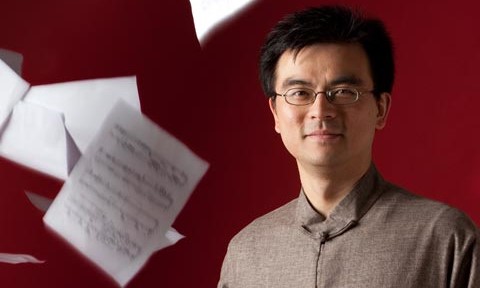 Gao Ping Gao Ping is a composer-pianist, born in Chengdu, in the Sichuan province of China. He studied in the USA in the 1990s. In demand as a composer, he has received commissions and performances from musicians around the world. The Beijing-based musicologist Li Xi’an has referred to Gao Ping as a leading member of the “sixth generation” of Chinese composers after the “fifth generation” of composers such as Tan Dun and Qu Xiaosong. Many prestigious venues have presented Gao Ping's works such as the Aspen Music Festival, Dresdener Musikfestspiele, Hibiki Hall Festival (Japan), New Zealand International Arts Festival (Wellington), and the Beijing-Modern International Music Festival. In Europe, his music has been commissioned or performed by groups including the Berlin Piano-Percussion Ensemble, the Zurich-based Ensemble Pyramide, and the Gaudeamus International Music Week in Amsterdam. While completing his Doctor of Musical Arts degree from the College-Conservatory of Music at the University of Cincinnati, Gao Ping won the 2003 Auros Compostion Prize (Boston) and was resident at the MacDowell Colony for Artists. In New Zealand, his music has been presented by Michael Houstoun, John Chen, Christchurch International Arts Festival, New Zealand String Quartet, and NZTrio. Gao was the recipient of the 2010 CANZ (Composers Association of NZ) Trust Fund Award. As a pianist, Gao Ping’s repertoire is extensive; he has performed to acclaim all over the world. In 2008, Gao Ping premiered his Piano Concerto with the New Zealand Symphony Orchestra under the baton of Mr. Kenneth Young. The Listener enthusiastically acclaimed the two-movement work as “a major concerto”. Gao Ping’s two albums released on the Naxos label were critically acclaimed and described as “music which wants to be heard with the ears of a child, full of wonder and amazement…. deep and vulnerable.” Gao is currently a Professor in Composition at the Conservatory of Music-Capital Normal University as well as a guest professor at the China Conservatory of Music. He previously taught at Canterbury University and Te Kōkī New Zealand School of Music.
Gao Ping Gao Ping is a composer-pianist, born in Chengdu, in the Sichuan province of China. He studied in the USA in the 1990s. In demand as a composer, he has received commissions and performances from musicians around the world. The Beijing-based musicologist Li Xi’an has referred to Gao Ping as a leading member of the “sixth generation” of Chinese composers after the “fifth generation” of composers such as Tan Dun and Qu Xiaosong. Many prestigious venues have presented Gao Ping's works such as the Aspen Music Festival, Dresdener Musikfestspiele, Hibiki Hall Festival (Japan), New Zealand International Arts Festival (Wellington), and the Beijing-Modern International Music Festival. In Europe, his music has been commissioned or performed by groups including the Berlin Piano-Percussion Ensemble, the Zurich-based Ensemble Pyramide, and the Gaudeamus International Music Week in Amsterdam. While completing his Doctor of Musical Arts degree from the College-Conservatory of Music at the University of Cincinnati, Gao Ping won the 2003 Auros Compostion Prize (Boston) and was resident at the MacDowell Colony for Artists. In New Zealand, his music has been presented by Michael Houstoun, John Chen, Christchurch International Arts Festival, New Zealand String Quartet, and NZTrio. Gao was the recipient of the 2010 CANZ (Composers Association of NZ) Trust Fund Award. As a pianist, Gao Ping’s repertoire is extensive; he has performed to acclaim all over the world. In 2008, Gao Ping premiered his Piano Concerto with the New Zealand Symphony Orchestra under the baton of Mr. Kenneth Young. The Listener enthusiastically acclaimed the two-movement work as “a major concerto”. Gao Ping’s two albums released on the Naxos label were critically acclaimed and described as “music which wants to be heard with the ears of a child, full of wonder and amazement…. deep and vulnerable.” Gao is currently a Professor in Composition at the Conservatory of Music-Capital Normal University as well as a guest professor at the China Conservatory of Music. He previously taught at Canterbury University and Te Kōkī New Zealand School of Music. -
 Li Yinghai Li Yinghai (1927-2007) was born in Sichuan, and in 1948 graduated in composition from Nanjing National Conservatory. He moved to Shanghai, and from 1949 taught at the Shanghai Conservatory and China Conservatory, of which he subsequently became Vice President. He wrote instrumental works and songs, and also books on music theory.
Li Yinghai Li Yinghai (1927-2007) was born in Sichuan, and in 1948 graduated in composition from Nanjing National Conservatory. He moved to Shanghai, and from 1949 taught at the Shanghai Conservatory and China Conservatory, of which he subsequently became Vice President. He wrote instrumental works and songs, and also books on music theory. -
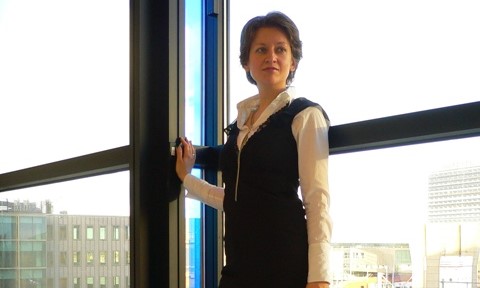 Polina Medyulyanova Polina Medyulyanova (Russian: Полина Медюлянова) is an Uzbek classical composer of chamber, choral and vocal works, which are often of a religious nature. She is also active as a performer, playing piano, organ, chang (Uzbek dulcimer), and is an orchestra conductor. She was born in Tashkent, Uzbekistan on April 4th 1974 as part of a musical family. She is the daughter of conductor Viktor Medyulyanov and pianist Natalya Gienko, and granddaughter of the composer Boris Gienko and pianist Tatyana Gienko. After graduating in Tashkent she moved to Amsterdam, where she is associated with the Sweelinck Conservatory. In 2006 she founded two active duos, one with singer Antje Siefert of Germany, and the other with violinist and composer Tania Sikelianou of Greece. Both ensembles are busy performing classical and modern music.
Polina Medyulyanova Polina Medyulyanova (Russian: Полина Медюлянова) is an Uzbek classical composer of chamber, choral and vocal works, which are often of a religious nature. She is also active as a performer, playing piano, organ, chang (Uzbek dulcimer), and is an orchestra conductor. She was born in Tashkent, Uzbekistan on April 4th 1974 as part of a musical family. She is the daughter of conductor Viktor Medyulyanov and pianist Natalya Gienko, and granddaughter of the composer Boris Gienko and pianist Tatyana Gienko. After graduating in Tashkent she moved to Amsterdam, where she is associated with the Sweelinck Conservatory. In 2006 she founded two active duos, one with singer Antje Siefert of Germany, and the other with violinist and composer Tania Sikelianou of Greece. Both ensembles are busy performing classical and modern music. -
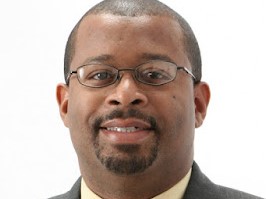 James Lee III James Lee III, born 1975 in St. Joseph, Michigan cites as his major composition teachers Michael Daugherty, William Bolcom, Bright Sheng, Betsy Jolas, Susan Botti, Erik Santos and James Aikman. He graduated with a Doctor of Musical Arts degree from the University of Michigan in 2005. As a composition fellow at the Tanglewood Music Center in the summer of 2002, he added Osvaldo Golijov, Michael Gandolfi, Steven Mackey and Kaija Saariaho to his roster of teachers, and studied conducting with Stefan Asbury. In 2006 he premiered Beyond Rivers of Vision in Washington D.C. at the Kennedy Center with the National Symphony Orchestra. During his inaugural concerts as the new music director of the Detroit Symphony Orchestra, Mr. Slatkin premiered A Different Soldier’s Tale with the orchestra in Detroit on December 11 – 14, 2008. The National Symphony, Baltimore Symphony, Soulful Symphony, Philadelphia Orchestra, Detroit Symphony, Memphis Symphony, Indianapolis Symphony, and the Southwest Michigan Symphony Orchestra have performed James Lee III’s works. Leonard Slatkin and the Detroit Symphony Orchestra performed Beyond Rivers of Vision on January 29 – 30, 2010. The 2009-2010 season also included the world premieres of 12 Preludes of the New Earth for piano by Daniel Lau (November), A Clean Heart for mixed chorus by the Baltimore Choral Arts Society (December), Scenes Upon Eternity’s Edge for flute, violin, cello, and piano by the Monument Piano Trio and flute (February), and a Morgan Fanfare by the Morgan State University Band with Melvin Miles directing (April). During the 2009 – 2010 season Dr. Lee won the Wladimir and Rhoda Lakond Award from the American Academy of Arts and Letters in New York City. He was also the composer-in-residence for the Ritz Chamber Players, an African-American chamber music society based in Jacksonville, Florida. Performances with that organization included the Florida premiere of The Appointed Time for string quartet. Pianist Terrence Wilson also performed Dr. Lee’s sonata for piano in Seattle, Washington on April 29, 2010. In May 2010, the Baltimore Symphony Orchestra performed a movement from Beyond Rivers of Vision. James Lee III was also commissioned by the Baltimore Symphony Orchestra to compose a work about the life of Harriet Tubman. The work is called Chuphshah! Harriet’s Drive to Canaan and it was premiered on September 23-25, 2011. He was also named the winner of the Sphinx Commissioning Consortium for the 2011-2012 season. Mr. Lee composed a new work called Sukkot Through Orion’s Nebula that was premiered by Michael Tilson Thomas and the New World Symphony Orchestra on October 15-16, 2011 in Miami Beach, FL. Other performances of Dr. James Lee III’s work include performances of Sukkot Through Orion’s Nebula with the Cincinnati Symphony (January 2012) and the Grand Rapids Symphony Orchestra (February 2012). February 1, 2012 included another performance of James Lee III’s string quartet The Appointed Time. On this particular occasion, the Harlem Symphony Orchestra Chamber Players presented it at the Forbes Center for the Performing Arts at James Madison University. On February 15, 2012 the Ritz Chamber Players gave the world premiere of Mr. Lee’s Night Visions of Kippur (piano quintet) at the University of Washington Meany Hall in Seattle. On January 13, 2013 Gye Nyame for chamber orchestra was premiered by Janise White and the Afro-American Chamber Music Society Orchestra in Los Angeles, CA. Also during the 2012-2013 season Sukkot Through Orion’s Nebula was performed by the Akron Symphony Orchestra in November 2012. The Detroit Symphony Orchestra also played this same work in March 2013. Later in the month of March, Mr. Lee’s newest work for band, Ancient Words, Current Realities! was premiered by the St. Olaf Band at the College Band Directors National Association Conference in Greensboro, NC. During the month of April, James Lee III also saw the premiere of his Piano Sonata No. 2 “The Remnant” premiered at the University of Illinois by pianist, Dr. Rochelle Sennet. Recently, James Lee III has been invited to be a composer among a list of internationally recognized composers to participate in the Psalms Project of the organization Soli Deo Gloria. His setting of Psalm 111 was premiered at the Second Presbyterian Church in Indianapolis on October 19, 2013. Other works and premieres of music by James Lee III during the 2013-2014 season include Fantasy on the Star-Spangled Banner by the Baltimore Symphony Orchestra on September 20 – 22, 2013, A Revelação Através do Santuário premiered by Jetro Oliveira and the choir of the Adventist University of São Paulo in Engenheiro Coelho and Americana, São Paulo, Brazil on September 22 & 24, 2013. On October 1, 2013, mezzo soprano Denyce Graves and the Sphinx Virtuosi premiered James Lee III’s arrangement of “Ev’ry Time I Feel the Spirit.” On February 23, 2014, the Harlem Chamber Players will perform Dr. Lee’s string quartet The Appointed Time at the Brooklyn Public Library in Brooklyn, NY. On March 1, the Hopkins Symphony Orchestra will premiere Alas! Babylon’s Final Sunset in Shriver Hall on the campus of Johns Hopkins University. From August to December 2014, James Lee III was a Fulbright Scholar and Visiting Professor to the State University of Campinas in Campinas, São Paulo, Brazil. He taught composition, composed, and researched the music of 20th and 21st century Brazilian composers. Highlights of the 2015-2016 for James Lee III include the premiere performances of Piano Trio No. 2 “Temple Visions” by the Montrose Trio in Portland, Baltimore, Philadelphia, and Detroit, and the world premiere of Thurgood’s Rhapsody commissioned by the Baltimore Symphony Orchestra for their centennial season celebration. Other works that will be premiered include Hallelu Yah! for the Baltimore Choral Arts Society in March 2016, Concerto for Piano and Winds for pianist, Dr. Rochelle Sennet in April 2016, and Mother’s Lament for soprano, boys choir, men’s chorus, and orchestra on September 17, 2016 in Baltimore at Morgan State University. Dr. Lee is also an associate professor at Morgan State University in Baltimore, Maryland. His Sukkot Through Orion’s Nebula was performed by the Atlanta Symphony Orchestra on October 20 & 22, 2016 in Atlanta, GA and his Night Visions of Kippur was performed at a contemporary music festival in Havana, Cuba on November 15, 2016. Since Dr. Lee’s graduation with a D.M.A. in composition from the University of Michigan in 2005, his orchestral works have been commissioned and premiered by the National Symphony Orchestra, Detroit Symphony Orchestra, Baltimore Symphony Orchestra, New World Symphony Orchestra, and the orchestras of Philadelphia, Indianapolis, Omaha, Pasadena, Memphis, Grand Rapids, Cincinnati, Atlanta, Akron, and have been conducted by such artists as Leonard Slatkin, Marin Alsop, Michael Tilson Thomas, Juanjo Mena, David Lockington, Thomas Wilkins, and others. During the 2019-2020 season, Sukkot Through Orion’s Nebula is scheduled to be performed by the Louisiana Philharmonic, Boston Symphony Orchestra, Cincinnati Symphony Orchestra, and Chicago Symphony Orchestra. James Lee III’s Concerto for Piano and Symphonic Band was premiered by Dr. Rochelle Sennet and the Morgan State University Symphonic Band in April 2016. His Concerto for Clarinet and Symphonic Band was premiered in Córdoba, Argentina by Nicolás Panatteri and the Symphonic Band of the Province of Córdoba in September 2016. Dr. Lee is also a winner of a Charles Ives Scholarship and the Wladimir Lakond Award from the American Academy of Arts and Letters. Chamber organizations such as the Montrose Trio, Ritz Chamber Players, and the Harlem Chamber Players have performed and premiered music by James Lee III. Pianist Dr. Rochelle Sennet recorded his piano music on the Albany Label in 2014. Dr. Sennet and her husband Igor Kalnin premiered his second violin sonata on March 16, 2019 at Luther College in Decorah, IA. Dr. Lee’s works have been premiered and performed internationally in Brazil, Argentina, Russia, and Cuba. Soprano Alison Buchanan also premiered a new song cycle composed especially for her in Jacksonville, FL and London, England in January and February 2019. In May 2019, Dr. Lee will see the premiere of his Sinfonia de Esperanza in Lima, Peru as part of the University of the Peruvian Adventist Union’s centennial celebrations. During the 2019-20 season the Louisiana Philharmonic Orchestra, Boston Symphony Orchestra, Cincinnati Symphony Orchestra, and Chicago Symphony Orchestra performed Dr. Lee’s Sukkot Through Orion’s Nebula in September, October, and November. During the 2021-2022 season, Sukkot Through Orion’s Nebula will be performed by the New World Symphony Orchestra and the Atlanta Symphony Orchestra in October. Also in October, world premieres of new works include Amer’ican, which will be premiered by the Detroit Symphony Orchestra and the Orlando Philharmonic Orchestra. Niiji Memories, a flute concerto will be premiered by Julietta Curenton and the Columbia Orchestra. In November the Calyx Piano Trio will premiere Dr. Lee’s Tones of Clay at Tanglewood. Later in November, the Saint Louis Symphony Orchestra will perform his Emotive Transformations. Other world premieres in early 2022 include Freedom’s Genuine Dawn to be premiered by the Baltimore Symphony Orchestra in January, Arukah Symphony to be premiered by the Maryland Symphony Orchestra in February, Hold On, America, Hold On! to be premiered by the Battle Creek Symphony Orchestra and Violin Concerto No. 2 “Teshuah” to be premiered by violinist Carla Trynchuk and the Andrews University Symphony Orchestra in March. In April, Tethered Voices will be premiered by the University Symphony Orchestra at the University of Michigan and a new work for soprano and string quartet that will be premiered by Karen Slack and the Pacifica String Quartet at Carnegie Hall in New York and Shriver Hall in Baltimore in May. James Lee III is a Professor of Music at Morgan State University in Baltimore, MD.
James Lee III James Lee III, born 1975 in St. Joseph, Michigan cites as his major composition teachers Michael Daugherty, William Bolcom, Bright Sheng, Betsy Jolas, Susan Botti, Erik Santos and James Aikman. He graduated with a Doctor of Musical Arts degree from the University of Michigan in 2005. As a composition fellow at the Tanglewood Music Center in the summer of 2002, he added Osvaldo Golijov, Michael Gandolfi, Steven Mackey and Kaija Saariaho to his roster of teachers, and studied conducting with Stefan Asbury. In 2006 he premiered Beyond Rivers of Vision in Washington D.C. at the Kennedy Center with the National Symphony Orchestra. During his inaugural concerts as the new music director of the Detroit Symphony Orchestra, Mr. Slatkin premiered A Different Soldier’s Tale with the orchestra in Detroit on December 11 – 14, 2008. The National Symphony, Baltimore Symphony, Soulful Symphony, Philadelphia Orchestra, Detroit Symphony, Memphis Symphony, Indianapolis Symphony, and the Southwest Michigan Symphony Orchestra have performed James Lee III’s works. Leonard Slatkin and the Detroit Symphony Orchestra performed Beyond Rivers of Vision on January 29 – 30, 2010. The 2009-2010 season also included the world premieres of 12 Preludes of the New Earth for piano by Daniel Lau (November), A Clean Heart for mixed chorus by the Baltimore Choral Arts Society (December), Scenes Upon Eternity’s Edge for flute, violin, cello, and piano by the Monument Piano Trio and flute (February), and a Morgan Fanfare by the Morgan State University Band with Melvin Miles directing (April). During the 2009 – 2010 season Dr. Lee won the Wladimir and Rhoda Lakond Award from the American Academy of Arts and Letters in New York City. He was also the composer-in-residence for the Ritz Chamber Players, an African-American chamber music society based in Jacksonville, Florida. Performances with that organization included the Florida premiere of The Appointed Time for string quartet. Pianist Terrence Wilson also performed Dr. Lee’s sonata for piano in Seattle, Washington on April 29, 2010. In May 2010, the Baltimore Symphony Orchestra performed a movement from Beyond Rivers of Vision. James Lee III was also commissioned by the Baltimore Symphony Orchestra to compose a work about the life of Harriet Tubman. The work is called Chuphshah! Harriet’s Drive to Canaan and it was premiered on September 23-25, 2011. He was also named the winner of the Sphinx Commissioning Consortium for the 2011-2012 season. Mr. Lee composed a new work called Sukkot Through Orion’s Nebula that was premiered by Michael Tilson Thomas and the New World Symphony Orchestra on October 15-16, 2011 in Miami Beach, FL. Other performances of Dr. James Lee III’s work include performances of Sukkot Through Orion’s Nebula with the Cincinnati Symphony (January 2012) and the Grand Rapids Symphony Orchestra (February 2012). February 1, 2012 included another performance of James Lee III’s string quartet The Appointed Time. On this particular occasion, the Harlem Symphony Orchestra Chamber Players presented it at the Forbes Center for the Performing Arts at James Madison University. On February 15, 2012 the Ritz Chamber Players gave the world premiere of Mr. Lee’s Night Visions of Kippur (piano quintet) at the University of Washington Meany Hall in Seattle. On January 13, 2013 Gye Nyame for chamber orchestra was premiered by Janise White and the Afro-American Chamber Music Society Orchestra in Los Angeles, CA. Also during the 2012-2013 season Sukkot Through Orion’s Nebula was performed by the Akron Symphony Orchestra in November 2012. The Detroit Symphony Orchestra also played this same work in March 2013. Later in the month of March, Mr. Lee’s newest work for band, Ancient Words, Current Realities! was premiered by the St. Olaf Band at the College Band Directors National Association Conference in Greensboro, NC. During the month of April, James Lee III also saw the premiere of his Piano Sonata No. 2 “The Remnant” premiered at the University of Illinois by pianist, Dr. Rochelle Sennet. Recently, James Lee III has been invited to be a composer among a list of internationally recognized composers to participate in the Psalms Project of the organization Soli Deo Gloria. His setting of Psalm 111 was premiered at the Second Presbyterian Church in Indianapolis on October 19, 2013. Other works and premieres of music by James Lee III during the 2013-2014 season include Fantasy on the Star-Spangled Banner by the Baltimore Symphony Orchestra on September 20 – 22, 2013, A Revelação Através do Santuário premiered by Jetro Oliveira and the choir of the Adventist University of São Paulo in Engenheiro Coelho and Americana, São Paulo, Brazil on September 22 & 24, 2013. On October 1, 2013, mezzo soprano Denyce Graves and the Sphinx Virtuosi premiered James Lee III’s arrangement of “Ev’ry Time I Feel the Spirit.” On February 23, 2014, the Harlem Chamber Players will perform Dr. Lee’s string quartet The Appointed Time at the Brooklyn Public Library in Brooklyn, NY. On March 1, the Hopkins Symphony Orchestra will premiere Alas! Babylon’s Final Sunset in Shriver Hall on the campus of Johns Hopkins University. From August to December 2014, James Lee III was a Fulbright Scholar and Visiting Professor to the State University of Campinas in Campinas, São Paulo, Brazil. He taught composition, composed, and researched the music of 20th and 21st century Brazilian composers. Highlights of the 2015-2016 for James Lee III include the premiere performances of Piano Trio No. 2 “Temple Visions” by the Montrose Trio in Portland, Baltimore, Philadelphia, and Detroit, and the world premiere of Thurgood’s Rhapsody commissioned by the Baltimore Symphony Orchestra for their centennial season celebration. Other works that will be premiered include Hallelu Yah! for the Baltimore Choral Arts Society in March 2016, Concerto for Piano and Winds for pianist, Dr. Rochelle Sennet in April 2016, and Mother’s Lament for soprano, boys choir, men’s chorus, and orchestra on September 17, 2016 in Baltimore at Morgan State University. Dr. Lee is also an associate professor at Morgan State University in Baltimore, Maryland. His Sukkot Through Orion’s Nebula was performed by the Atlanta Symphony Orchestra on October 20 & 22, 2016 in Atlanta, GA and his Night Visions of Kippur was performed at a contemporary music festival in Havana, Cuba on November 15, 2016. Since Dr. Lee’s graduation with a D.M.A. in composition from the University of Michigan in 2005, his orchestral works have been commissioned and premiered by the National Symphony Orchestra, Detroit Symphony Orchestra, Baltimore Symphony Orchestra, New World Symphony Orchestra, and the orchestras of Philadelphia, Indianapolis, Omaha, Pasadena, Memphis, Grand Rapids, Cincinnati, Atlanta, Akron, and have been conducted by such artists as Leonard Slatkin, Marin Alsop, Michael Tilson Thomas, Juanjo Mena, David Lockington, Thomas Wilkins, and others. During the 2019-2020 season, Sukkot Through Orion’s Nebula is scheduled to be performed by the Louisiana Philharmonic, Boston Symphony Orchestra, Cincinnati Symphony Orchestra, and Chicago Symphony Orchestra. James Lee III’s Concerto for Piano and Symphonic Band was premiered by Dr. Rochelle Sennet and the Morgan State University Symphonic Band in April 2016. His Concerto for Clarinet and Symphonic Band was premiered in Córdoba, Argentina by Nicolás Panatteri and the Symphonic Band of the Province of Córdoba in September 2016. Dr. Lee is also a winner of a Charles Ives Scholarship and the Wladimir Lakond Award from the American Academy of Arts and Letters. Chamber organizations such as the Montrose Trio, Ritz Chamber Players, and the Harlem Chamber Players have performed and premiered music by James Lee III. Pianist Dr. Rochelle Sennet recorded his piano music on the Albany Label in 2014. Dr. Sennet and her husband Igor Kalnin premiered his second violin sonata on March 16, 2019 at Luther College in Decorah, IA. Dr. Lee’s works have been premiered and performed internationally in Brazil, Argentina, Russia, and Cuba. Soprano Alison Buchanan also premiered a new song cycle composed especially for her in Jacksonville, FL and London, England in January and February 2019. In May 2019, Dr. Lee will see the premiere of his Sinfonia de Esperanza in Lima, Peru as part of the University of the Peruvian Adventist Union’s centennial celebrations. During the 2019-20 season the Louisiana Philharmonic Orchestra, Boston Symphony Orchestra, Cincinnati Symphony Orchestra, and Chicago Symphony Orchestra performed Dr. Lee’s Sukkot Through Orion’s Nebula in September, October, and November. During the 2021-2022 season, Sukkot Through Orion’s Nebula will be performed by the New World Symphony Orchestra and the Atlanta Symphony Orchestra in October. Also in October, world premieres of new works include Amer’ican, which will be premiered by the Detroit Symphony Orchestra and the Orlando Philharmonic Orchestra. Niiji Memories, a flute concerto will be premiered by Julietta Curenton and the Columbia Orchestra. In November the Calyx Piano Trio will premiere Dr. Lee’s Tones of Clay at Tanglewood. Later in November, the Saint Louis Symphony Orchestra will perform his Emotive Transformations. Other world premieres in early 2022 include Freedom’s Genuine Dawn to be premiered by the Baltimore Symphony Orchestra in January, Arukah Symphony to be premiered by the Maryland Symphony Orchestra in February, Hold On, America, Hold On! to be premiered by the Battle Creek Symphony Orchestra and Violin Concerto No. 2 “Teshuah” to be premiered by violinist Carla Trynchuk and the Andrews University Symphony Orchestra in March. In April, Tethered Voices will be premiered by the University Symphony Orchestra at the University of Michigan and a new work for soprano and string quartet that will be premiered by Karen Slack and the Pacifica String Quartet at Carnegie Hall in New York and Shriver Hall in Baltimore in May. James Lee III is a Professor of Music at Morgan State University in Baltimore, MD. -
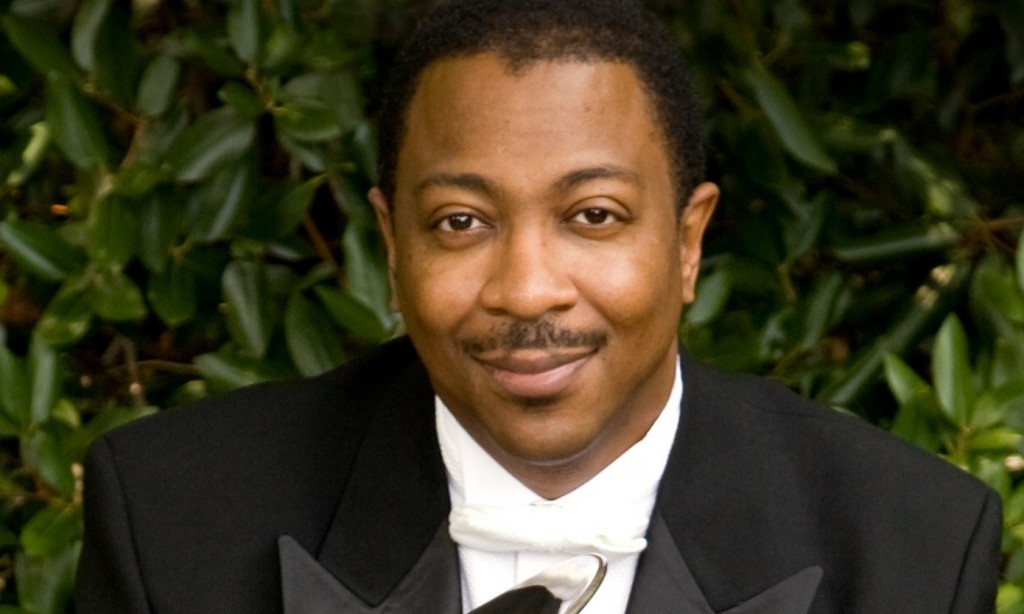 Kenneth Amis World renowned composer-performer, Kenneth Amis, enjoys an international career of high acclaim. Mr. Amis began his musical exploits in his home country of Bermuda. He began playing the piano at a young age and upon entering high school took up the tuba and developed an interest in performing and writing music. A Suite for Bass Tuba, composed when he was only fourteen, marked his first published work. A year later, at age sixteen, he enrolled in Boston University where he majored in composition. After graduating from Boston University he attended the New England Conservatory of Music where he received his master’s degree in composition. An active composer, Mr. Amis has received commissions from several institutions and music organizations. He has undertaken residencies with educational institutions ranging from middle schools through the collegiate level and was a founding member and on the Board of Directors for the American Composers Forum New England Chapter. In 2007 he was Composer-in-residence at the South Shore Conservatory in Massachusetts. Audiences around the world have enjoyed Mr. Amis’s music through performances by such groups as the Shanghai Symphony Orchestra, the Indianapolis Symphony Orchestra, the Royal Academy of Music Symphonic Winds, the Detroit Symphony Orchestra and the National Arts Center Orchestra of Ottawa. In 2003 Mr. Amis became the youngest recipient of New England Conservatory of Music’s “Outstanding Alumni Award.” As a tuba player, Mr. Amis has performed as a soloist with the English Chamber Orchestra and has been a member of the Tanglewood Festival Orchestra and the New World Symphony Orchestra. His performance skills are showcased on many commercial records distributed internationally. Mr. Amis has served on the faculties of Boston University Tanglewood Institute, the Trombones de Costa Rica International Festival in Costa Rica and the Pacific Music Festival in Japan. His current academic affiliations can be seen below. Mr. Amis is presently the tuba player of the Empire Brass and the Palm Beach Opera Orchestra and a performing artist for Besson instruments. Mr. Amis performs on a Besson 981 Eb tuba and a Rudolf Meinl 5/4 CC tuba.
Kenneth Amis World renowned composer-performer, Kenneth Amis, enjoys an international career of high acclaim. Mr. Amis began his musical exploits in his home country of Bermuda. He began playing the piano at a young age and upon entering high school took up the tuba and developed an interest in performing and writing music. A Suite for Bass Tuba, composed when he was only fourteen, marked his first published work. A year later, at age sixteen, he enrolled in Boston University where he majored in composition. After graduating from Boston University he attended the New England Conservatory of Music where he received his master’s degree in composition. An active composer, Mr. Amis has received commissions from several institutions and music organizations. He has undertaken residencies with educational institutions ranging from middle schools through the collegiate level and was a founding member and on the Board of Directors for the American Composers Forum New England Chapter. In 2007 he was Composer-in-residence at the South Shore Conservatory in Massachusetts. Audiences around the world have enjoyed Mr. Amis’s music through performances by such groups as the Shanghai Symphony Orchestra, the Indianapolis Symphony Orchestra, the Royal Academy of Music Symphonic Winds, the Detroit Symphony Orchestra and the National Arts Center Orchestra of Ottawa. In 2003 Mr. Amis became the youngest recipient of New England Conservatory of Music’s “Outstanding Alumni Award.” As a tuba player, Mr. Amis has performed as a soloist with the English Chamber Orchestra and has been a member of the Tanglewood Festival Orchestra and the New World Symphony Orchestra. His performance skills are showcased on many commercial records distributed internationally. Mr. Amis has served on the faculties of Boston University Tanglewood Institute, the Trombones de Costa Rica International Festival in Costa Rica and the Pacific Music Festival in Japan. His current academic affiliations can be seen below. Mr. Amis is presently the tuba player of the Empire Brass and the Palm Beach Opera Orchestra and a performing artist for Besson instruments. Mr. Amis performs on a Besson 981 Eb tuba and a Rudolf Meinl 5/4 CC tuba. -
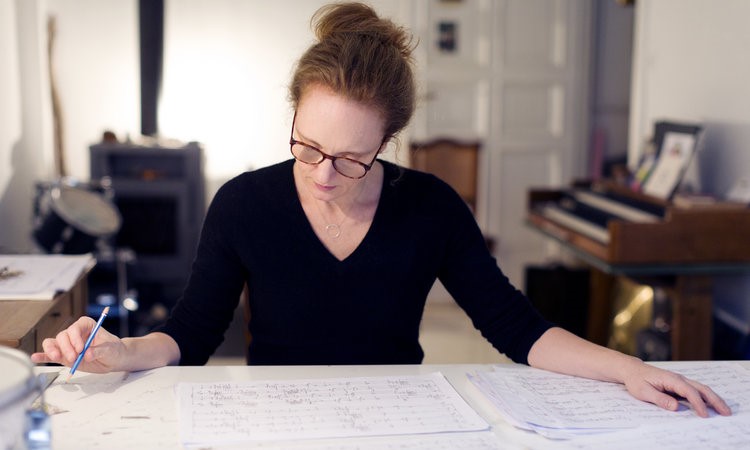 Rebecca Saunders British-born Rebecca Saunders is one of the leading international composers of her generation. Her compositions focus on the sculptural and spatial properties of organised sound, often created in close collaborative dialogue with a variety of musicians and artists. Saunders has received numerous prizes, including the Ernst von Siemens Music Prize 2019. She holds a professorship at the HMTM Hannover and is a member of the Academies of Arts in Berlin, Dresden and Munich.
Rebecca Saunders British-born Rebecca Saunders is one of the leading international composers of her generation. Her compositions focus on the sculptural and spatial properties of organised sound, often created in close collaborative dialogue with a variety of musicians and artists. Saunders has received numerous prizes, including the Ernst von Siemens Music Prize 2019. She holds a professorship at the HMTM Hannover and is a member of the Academies of Arts in Berlin, Dresden and Munich. -
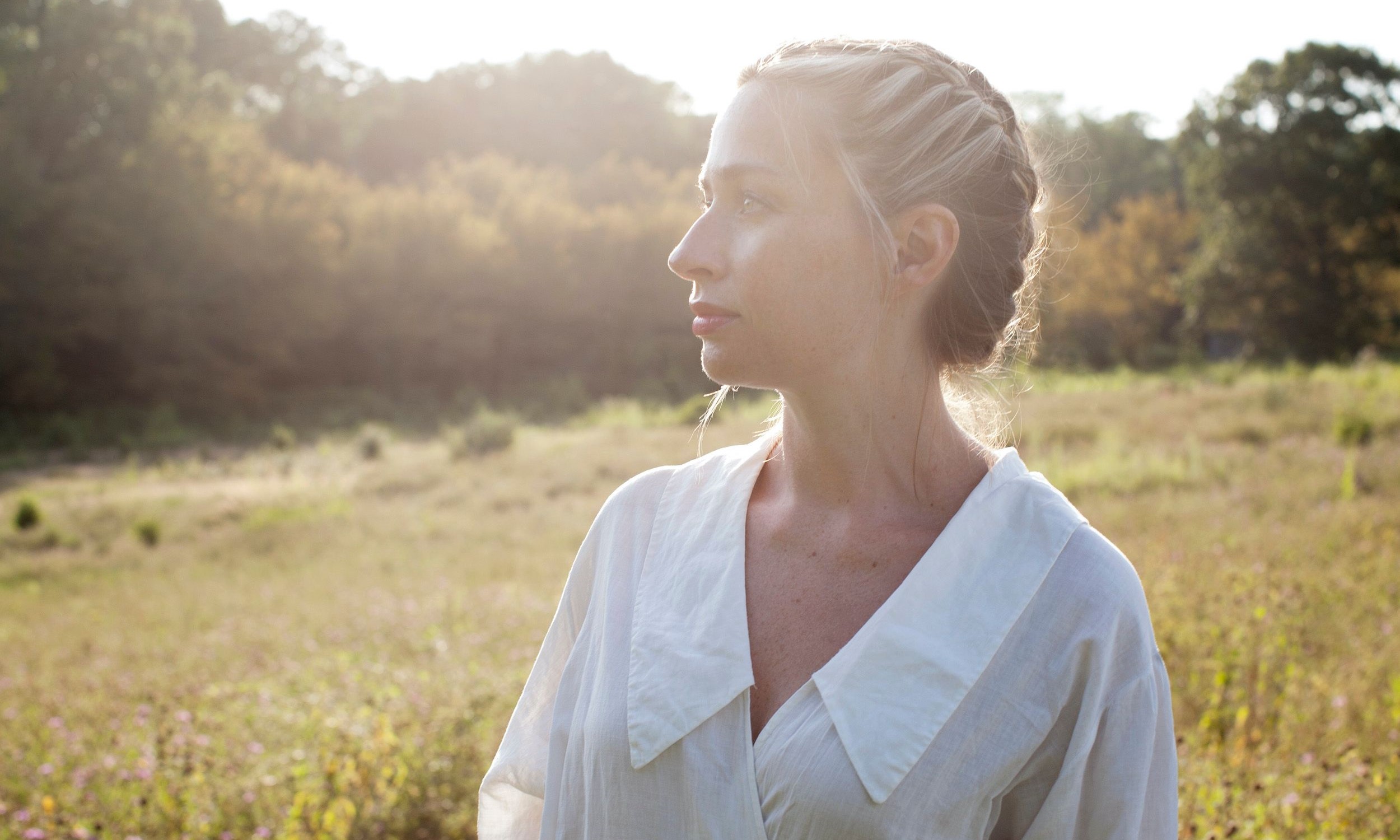 Sarah Kirkland Snider Recently deemed “one of the decade’s more gifted, up-and-coming modern classical composers” (Pitchfork), “a potentially significant voice on the American music landscape” (David Patrick Stearns, Philadelphia Inquirer), and “an important representative of 21st century trends in composition” (New York Classical Review), composer Sarah Kirkland Snider writes music of direct expression and vivid narrative that has been hailed as “rapturous” (The New York Times), “groundbreaking” (The Boston Globe), and “poignant, deeply personal” (The New Yorker). With an ear for the poetic and the architectural, Snider’s music draws upon a diversity of influences to render a nuanced command of immersive storytelling. Of her orchestral song cycle, Penelope, Pitchfork‘s Jayson Greene proclaimed: “Snider’s music lives in…an increasingly populous inter-genre space that, as of yet, has produced only a few clear, confident voices. Snider is perhaps the most sophisticated of them all.” Snider’s works have been commissioned and performed by the New York Philharmonic, the San Francisco Symphony, the National Symphony Orchestra, the Detroit Symphony Orchestra, the Indianapolis Symphony Orchestra, the Kansas City Symphony, and the St. Paul Chamber Orchestra; the Residentie Orkest Den Haag, the Melbourne Symphony Orchestra, Aarhus Symfoniorkester, Britten Sinfonia, and National Arts Centre Orchestra; percussionist Colin Currie, tenor Nicholas Phan, and vocalist Shara Nova (formerly Worden); eighth blackbird, A Far Cry, Ensemble Signal, The Knights, and yMusic; Roomful of Teeth, Cantus, and Trinity Wall Street Choir; and many others. Conductors who have championed her work include Andreas Delfs, David Danzmayr, Andre dé Ridder, James Gaffigan, Giancarlo Guerrero, Ryan McAdams, Rossen Milanov, Edwin Outwater, and Leonard Slatkin. Her music has been heard in concert halls around the world including Carnegie Hall, the Elbphilharmonie, the Sydney Opera House, Lincoln Center, the Kennedy Center, and Wigmore Hall; and at festivals such as Big Ears, BAM Next Wave, Aspen, Ecstatic, Colorado, Cross-linx,Sundance, BAM’s Crossing Brooklyn Ferry, Bang On a Can Summer, Liquid Music, 21C Liederabend, New York Festival of Song, Podium (Germany), Oranjewoud (Holland), and Apples & Olives (Switzerland.) Penelope, her acclaimed song cycle inspired by The Odyssey on text by Ellen McLaughlin, has been performed over fifty times in North America and Europe. Current projects include Forward Into Light, an orchestral commission inspired by the American women’s suffrage movement for the New York Philharmonic to premiere on their season finale concert in June 2020, and an opera on 12th century visionary/abbess/composer Hildegard von Bingen–commissioned by Beth Morrison Projects, with a grant from Opera America–to premiere at Prototype Festival in January 2023. Highlights of Snider’s 2019-2020 season include performances of her 27-minute tone poem Hiraeth by the New Jersey Symphony Orchestra under Xian Zhang, the Louisville Orchestra under Teddy Abrams, and the Cabrillo Festival under Cristian Macelaru. Louisville Orchestra also performs The Blue Hour, an hourlong work for soprano and string orchestra co-composed by Snider, Caroline Shaw, Rachel Grimes, Angélica Negrón, and Shara Nova, who will also be the featured vocalist at this performance. Snider is Distinguished Guest Composer at the 2020 Winnipeg New Music Festival, which features performances of Hiraeth and Penelope (also featuring Shara Nova) under the baton of Daniel Raiskin. She is also a featured composer at Soundstreams’s RBC Bridges program, which will present a survey of her choral works in Toronto. Something for the Dark, Snider’s popular 12-minute portrait of resilience, is to be performed by the Phoenix Symphony under Tito Muñoz and the Cleveland Orchestra Youth Orchestra under Vinay Parameswaran, among others. Snider’s season culminates in the world premiere of Forward Into Light at David Geffen Hall, with Jaap van Zweden leading the New York Philharmonic. Snider will also curate a concert of chamber music for the finale of the New York Philharmonic hotspots festival to coincide with her premiere. Forward Into Light will also be heard at Aspen Music Festival, under the baton of Hugh Wolff, alongside the premiere of a new set of songs for Soprano, Tenor, and Two Pianos commissioned by the festival entitled Solitude of Self.
Sarah Kirkland Snider Recently deemed “one of the decade’s more gifted, up-and-coming modern classical composers” (Pitchfork), “a potentially significant voice on the American music landscape” (David Patrick Stearns, Philadelphia Inquirer), and “an important representative of 21st century trends in composition” (New York Classical Review), composer Sarah Kirkland Snider writes music of direct expression and vivid narrative that has been hailed as “rapturous” (The New York Times), “groundbreaking” (The Boston Globe), and “poignant, deeply personal” (The New Yorker). With an ear for the poetic and the architectural, Snider’s music draws upon a diversity of influences to render a nuanced command of immersive storytelling. Of her orchestral song cycle, Penelope, Pitchfork‘s Jayson Greene proclaimed: “Snider’s music lives in…an increasingly populous inter-genre space that, as of yet, has produced only a few clear, confident voices. Snider is perhaps the most sophisticated of them all.” Snider’s works have been commissioned and performed by the New York Philharmonic, the San Francisco Symphony, the National Symphony Orchestra, the Detroit Symphony Orchestra, the Indianapolis Symphony Orchestra, the Kansas City Symphony, and the St. Paul Chamber Orchestra; the Residentie Orkest Den Haag, the Melbourne Symphony Orchestra, Aarhus Symfoniorkester, Britten Sinfonia, and National Arts Centre Orchestra; percussionist Colin Currie, tenor Nicholas Phan, and vocalist Shara Nova (formerly Worden); eighth blackbird, A Far Cry, Ensemble Signal, The Knights, and yMusic; Roomful of Teeth, Cantus, and Trinity Wall Street Choir; and many others. Conductors who have championed her work include Andreas Delfs, David Danzmayr, Andre dé Ridder, James Gaffigan, Giancarlo Guerrero, Ryan McAdams, Rossen Milanov, Edwin Outwater, and Leonard Slatkin. Her music has been heard in concert halls around the world including Carnegie Hall, the Elbphilharmonie, the Sydney Opera House, Lincoln Center, the Kennedy Center, and Wigmore Hall; and at festivals such as Big Ears, BAM Next Wave, Aspen, Ecstatic, Colorado, Cross-linx,Sundance, BAM’s Crossing Brooklyn Ferry, Bang On a Can Summer, Liquid Music, 21C Liederabend, New York Festival of Song, Podium (Germany), Oranjewoud (Holland), and Apples & Olives (Switzerland.) Penelope, her acclaimed song cycle inspired by The Odyssey on text by Ellen McLaughlin, has been performed over fifty times in North America and Europe. Current projects include Forward Into Light, an orchestral commission inspired by the American women’s suffrage movement for the New York Philharmonic to premiere on their season finale concert in June 2020, and an opera on 12th century visionary/abbess/composer Hildegard von Bingen–commissioned by Beth Morrison Projects, with a grant from Opera America–to premiere at Prototype Festival in January 2023. Highlights of Snider’s 2019-2020 season include performances of her 27-minute tone poem Hiraeth by the New Jersey Symphony Orchestra under Xian Zhang, the Louisville Orchestra under Teddy Abrams, and the Cabrillo Festival under Cristian Macelaru. Louisville Orchestra also performs The Blue Hour, an hourlong work for soprano and string orchestra co-composed by Snider, Caroline Shaw, Rachel Grimes, Angélica Negrón, and Shara Nova, who will also be the featured vocalist at this performance. Snider is Distinguished Guest Composer at the 2020 Winnipeg New Music Festival, which features performances of Hiraeth and Penelope (also featuring Shara Nova) under the baton of Daniel Raiskin. She is also a featured composer at Soundstreams’s RBC Bridges program, which will present a survey of her choral works in Toronto. Something for the Dark, Snider’s popular 12-minute portrait of resilience, is to be performed by the Phoenix Symphony under Tito Muñoz and the Cleveland Orchestra Youth Orchestra under Vinay Parameswaran, among others. Snider’s season culminates in the world premiere of Forward Into Light at David Geffen Hall, with Jaap van Zweden leading the New York Philharmonic. Snider will also curate a concert of chamber music for the finale of the New York Philharmonic hotspots festival to coincide with her premiere. Forward Into Light will also be heard at Aspen Music Festival, under the baton of Hugh Wolff, alongside the premiere of a new set of songs for Soprano, Tenor, and Two Pianos commissioned by the festival entitled Solitude of Self. -
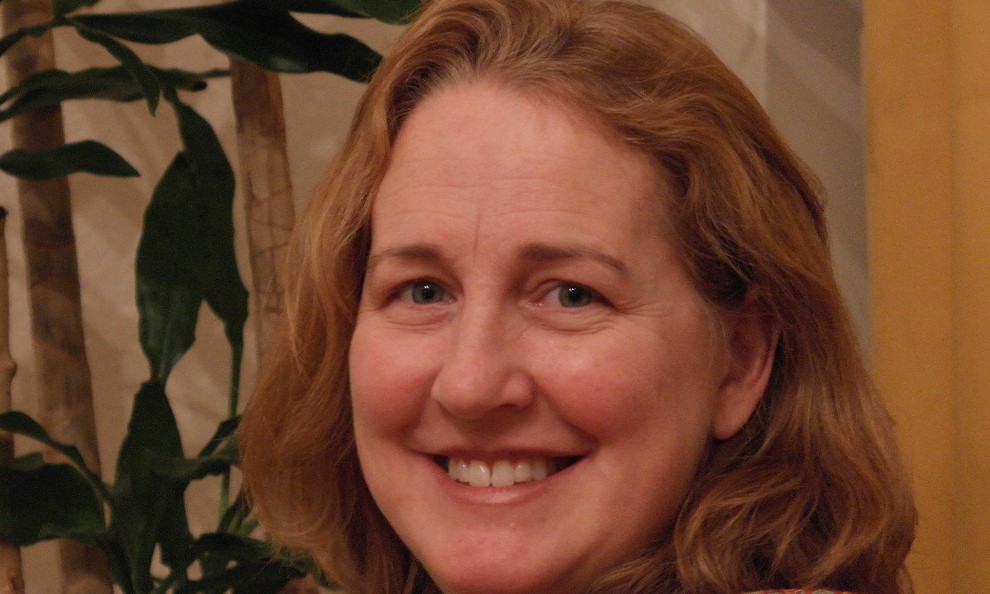 Martha Callison Horst Ms. Horst is a composer who has devoted herself to the performance, creation, and instruction of classical music. Her music has also been played by performers and groups such as the Fromm Players, CUBE, Earplay, Alea III, Empyrean Ensemble, Susan Narucki, Left Coast Ensemble, Dal Niente, The Women's Philharmonic, Composers, Inc., members of the Scottish Chamber Orchestra, Eric Mandat, and Amy Briggs. Ms. Horst has won the Copland Award, the 2005 Alea III International Composition Competition for her work Threads, and the Rebecca Clarke International Composition Competition for her work Cloister Songs, based on 18th century utopian poetry. She has held fellowships at the MacDowell Colony, Atlantic Center for the Arts, Wellesley Conference, Norfolk Chamber Music Festival and Dartington International School in the UK. Her work Piano Sonata No. 1, recorded by acclaimed pianist Lara Downes, was released nationally by Crossover Media. Dr. Horst currently teaches composition and theory at Illinois State University and has also taught at the University of California, Davis, East Carolina University, and San Francisco State University. She currently serves as the composer-in-residence for the Illinois Philharmonic Orchestra in Chicago, IL.
Martha Callison Horst Ms. Horst is a composer who has devoted herself to the performance, creation, and instruction of classical music. Her music has also been played by performers and groups such as the Fromm Players, CUBE, Earplay, Alea III, Empyrean Ensemble, Susan Narucki, Left Coast Ensemble, Dal Niente, The Women's Philharmonic, Composers, Inc., members of the Scottish Chamber Orchestra, Eric Mandat, and Amy Briggs. Ms. Horst has won the Copland Award, the 2005 Alea III International Composition Competition for her work Threads, and the Rebecca Clarke International Composition Competition for her work Cloister Songs, based on 18th century utopian poetry. She has held fellowships at the MacDowell Colony, Atlantic Center for the Arts, Wellesley Conference, Norfolk Chamber Music Festival and Dartington International School in the UK. Her work Piano Sonata No. 1, recorded by acclaimed pianist Lara Downes, was released nationally by Crossover Media. Dr. Horst currently teaches composition and theory at Illinois State University and has also taught at the University of California, Davis, East Carolina University, and San Francisco State University. She currently serves as the composer-in-residence for the Illinois Philharmonic Orchestra in Chicago, IL. -
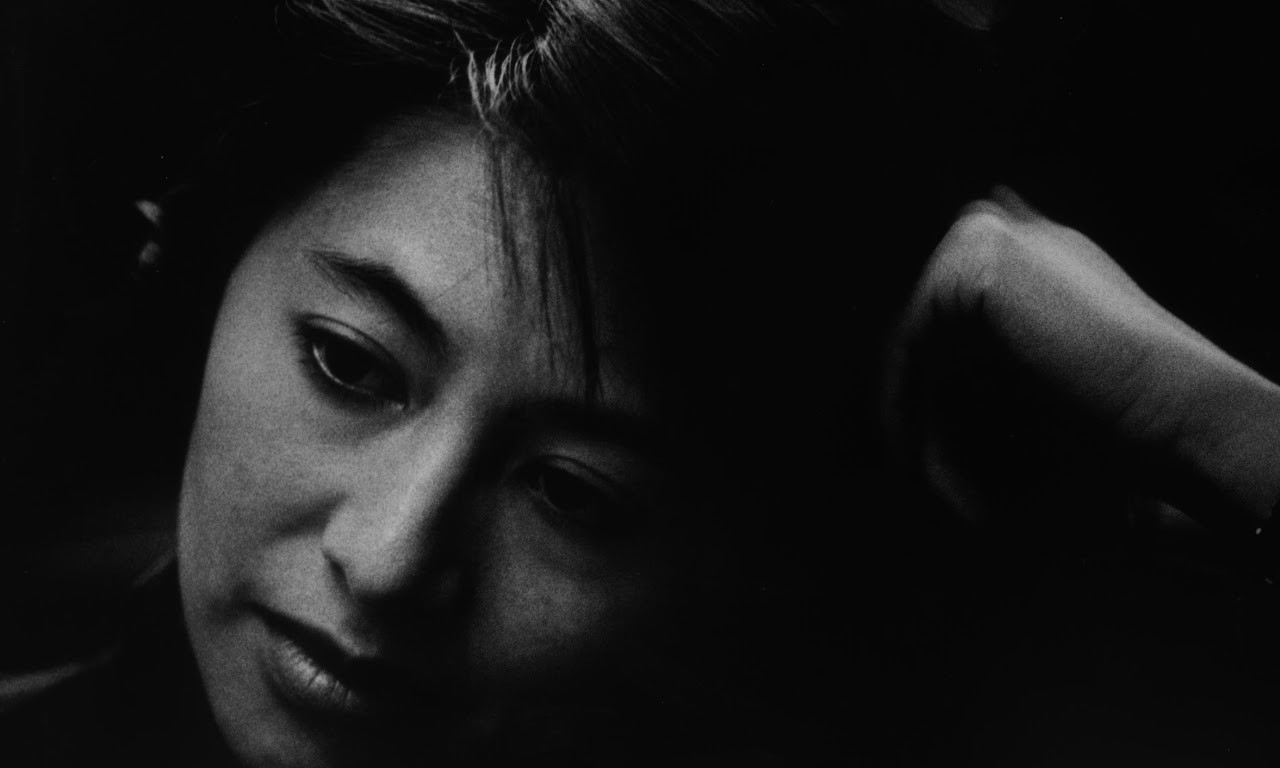 Melissa Hui Canadian composer Melissa Hui was born in Hong Kong and raised in North Vancouver, BC. Initially inspired by the haunting music of the Mbuti of Central Africa, Javanese gamelan and Japanese gagaku court orchestra, she strives to create a personal music of ethereal beauty, intimate lyricism and raucous violence. Her work has been commissioned and performed throughout North America, Europe and Asia, including performances by the American Composers Orchestra at Carnegie Hall, St. Lawrence String Quartet, Esprit Orchestra, Vancouver Symphony Orchestra, National Arts Centre Orchestra, Focus Festival in New York City, Oregon Symphony, International Gaudeamus Music Week in Amsterdam, ISCM Festivals in Croatia and Switzerland, and the Hong Kong Arts Festival. The recipient of awards from the Guggenheim and Fromm Foundations, and a doctorate from Yale University, she was on the composition faculty at Stanford University for ten years before moving to Montreal. Melissa joined the Schulich School of Music at McGill University in 2010. She is a founding member of the Common Sense Composers' Collective.
Melissa Hui Canadian composer Melissa Hui was born in Hong Kong and raised in North Vancouver, BC. Initially inspired by the haunting music of the Mbuti of Central Africa, Javanese gamelan and Japanese gagaku court orchestra, she strives to create a personal music of ethereal beauty, intimate lyricism and raucous violence. Her work has been commissioned and performed throughout North America, Europe and Asia, including performances by the American Composers Orchestra at Carnegie Hall, St. Lawrence String Quartet, Esprit Orchestra, Vancouver Symphony Orchestra, National Arts Centre Orchestra, Focus Festival in New York City, Oregon Symphony, International Gaudeamus Music Week in Amsterdam, ISCM Festivals in Croatia and Switzerland, and the Hong Kong Arts Festival. The recipient of awards from the Guggenheim and Fromm Foundations, and a doctorate from Yale University, she was on the composition faculty at Stanford University for ten years before moving to Montreal. Melissa joined the Schulich School of Music at McGill University in 2010. She is a founding member of the Common Sense Composers' Collective. -
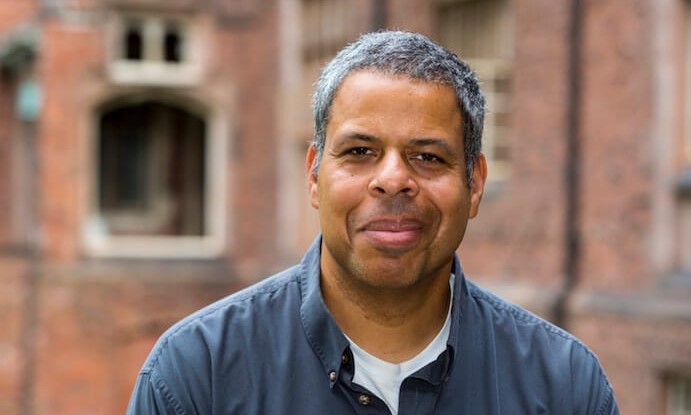 David Sanford David Sanford credits a variety of influences with igniting his musicianship. "I started on trombone when I was about ten and liked big band music early. I wanted to be a jazz musician. Charles Mingus inspired me to be a composer later on." Sanford was also influenced by rhythm and blues/funk groups like Parliament, the Isley Brothers, and Sly and the Family Stone and, later, by orchestral and more mainstream popular music. After completing undergraduate music studies at the University of Northern Colorado, he earned a master's degree in theory and composition from the New England Conservatory of Music and an M.F.A. and Ph.D. at Princeton University. Sanford has won many awards and honors, including a BMI Student Composer Award, a Koussevitzky Commission and a Guggenheim Fellowship, which enabled him to take a year off to focus exclusively on composing during graduate school. Recently, Sanford won the Samuel Barber Rome Prize Fellowship, allowing him to stay at the American Academy in Rome for 11 months with a group of 25 to 30 scholars in other areas of the humanities. One of the referees for his work wrote: "David Sanford is the real thing, a composer in the American tradition of brash, open-eared exploration: no material is too exalted or too debased for him to transform into his living art." Sanford's works have been performed by the Chamber Society of Lincoln Center, the San Francisco Contemporary Music Players, the Chicago Symphony Chamber Players, the Detroit Symphony Orchestra, the Harlem Festival Orchestra, cellist Matt Haimovitz, the Corvini e Iodice Roma Jazz Ensemble, the Meridian Arts Ensemble, Speculum Musicae, the Empyrean Ensemble at UC Davis, Mount Holyoke faculty members Linda Laderach, Adrianne Greenbaum, and Larry Schipull, and dozens of other groups and performers. In addition, he has conducted performances of his own works at Monadnock Music, New England Conservatory, the Knitting Factory, and the Five Colleges New Music Festival, and leads his own big band, the Pittsburgh Collective. At Mount Holyoke, Sanford teaches theory (ear training, class harmony, and advanced seminar), composition, twentieth-century music history, jazz history, music in film, and music of the 1970s.
David Sanford David Sanford credits a variety of influences with igniting his musicianship. "I started on trombone when I was about ten and liked big band music early. I wanted to be a jazz musician. Charles Mingus inspired me to be a composer later on." Sanford was also influenced by rhythm and blues/funk groups like Parliament, the Isley Brothers, and Sly and the Family Stone and, later, by orchestral and more mainstream popular music. After completing undergraduate music studies at the University of Northern Colorado, he earned a master's degree in theory and composition from the New England Conservatory of Music and an M.F.A. and Ph.D. at Princeton University. Sanford has won many awards and honors, including a BMI Student Composer Award, a Koussevitzky Commission and a Guggenheim Fellowship, which enabled him to take a year off to focus exclusively on composing during graduate school. Recently, Sanford won the Samuel Barber Rome Prize Fellowship, allowing him to stay at the American Academy in Rome for 11 months with a group of 25 to 30 scholars in other areas of the humanities. One of the referees for his work wrote: "David Sanford is the real thing, a composer in the American tradition of brash, open-eared exploration: no material is too exalted or too debased for him to transform into his living art." Sanford's works have been performed by the Chamber Society of Lincoln Center, the San Francisco Contemporary Music Players, the Chicago Symphony Chamber Players, the Detroit Symphony Orchestra, the Harlem Festival Orchestra, cellist Matt Haimovitz, the Corvini e Iodice Roma Jazz Ensemble, the Meridian Arts Ensemble, Speculum Musicae, the Empyrean Ensemble at UC Davis, Mount Holyoke faculty members Linda Laderach, Adrianne Greenbaum, and Larry Schipull, and dozens of other groups and performers. In addition, he has conducted performances of his own works at Monadnock Music, New England Conservatory, the Knitting Factory, and the Five Colleges New Music Festival, and leads his own big band, the Pittsburgh Collective. At Mount Holyoke, Sanford teaches theory (ear training, class harmony, and advanced seminar), composition, twentieth-century music history, jazz history, music in film, and music of the 1970s. -
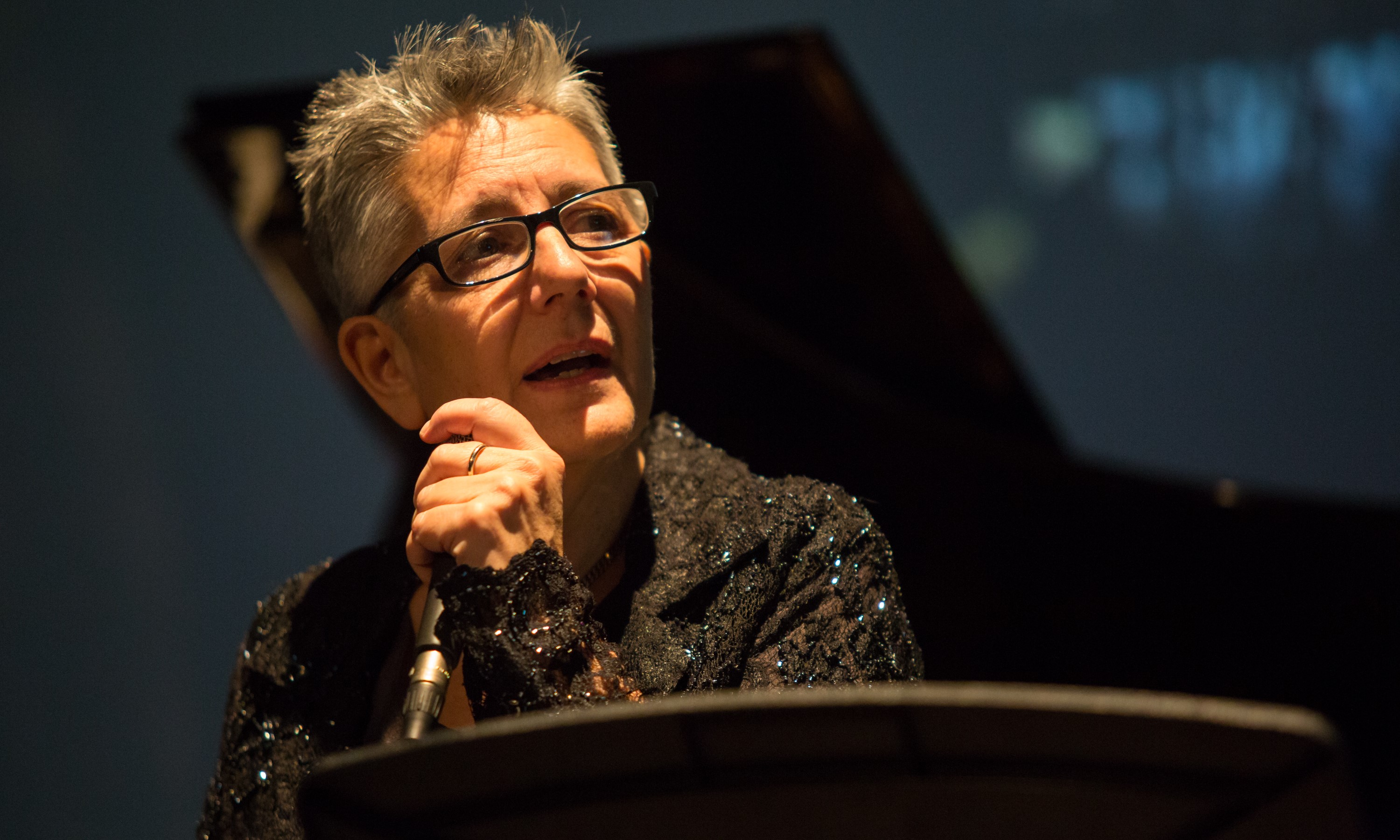 Eve Beglarian According to the Los Angeles Times, composer and performer Eve Beglarian is a “humane, idealistic rebel and a musical sensualist.” A 2017 winner of the Alpert Award in the Arts for her “prolific, engaging and surprising body of work,” she has also been awarded the 2015 Robert Rauschenberg Prize from the Foundation for Contemporary Arts for her “innovation, risk-taking, and experimentation.” Beglarian’s current projects include a collaboration with writer/performer Karen Kandel and writer/director Mallory Catlett about women in Vicksburg from the Civil War to the present, a piece about the controversial Balthus painting Thérèse Dreaming for vocalist Lucy Dhegrae, and a duo for uilleann pipes and organ that was premiered by Renée Louprette and Ivan Goff at Disney Hall as part of the Los Angeles Philharmonic’s 100th anniversary celebrations. Since 2001, she has been creating A Book of Days, “a grand and gradually manifesting work in progress…an eclectic and wide-open series of enticements.” (Los Angeles Times) In 2009, “Ms. Beglarian kayaked and bicycled the length of the Mississippi River [and] has translated her findings into music of sophisticated rusticity. [Her] new Americana song cycle captures those swift currents as vividly as Mark Twain did. The works waft gracefully on her handsome folk croon and varied folk instrumentation as mysterious as their inspiration.” (New York Times) Beglarian’s chamber, choral, and orchestral music has been commissioned and widely performed by the Los Angeles Master Chorale, the American Composers Orchestra, the Bang on a Can All-Stars, the Chamber Music Society of Lincoln Center, the California EAR Unit, the Orchestra of St. Luke’s, loadbang, Newspeak, the Ekmeles Vocal Ensemble and individual performers including Maya Beiser, Lara Downes, Lucy Dhegrae, and Thomas Feng. Highlights of Beglarian’s work in music theater includes music for Mabou Mines’ Obie-winning Dollhouse, Animal Magnetism, Ecco Porco, Choephorai, and Shalom Shanghai, all directed by Lee Breuer; Forgiveness, a collaboration with Chen Shi-Zheng and Noh master Akira Matsui; and the China National Beijing Opera Theater’s production of The Bacchae, also directed by Chen Shi-Zheng. She has collaborated with choreographers including Ann Carlson, Robert LaFosse, Victoria Marks, Susan Marshall, David Neumann, Take Ueyama, and Megan Williams, and with visual and video artists including Cory Arcangel, Anne Bray, Vittoria Chierici, Barbara Hammer, Kevork Mourad, Shirin Neshat, Matt Petty, Bradley Wester, and Judson Wright. Performance projects include Brim, Songs from a Book of Days, The Story of B, Open Secrets, Hildegurls’ Ordo Virtutum, twisted tutu, and typOpera.
Eve Beglarian According to the Los Angeles Times, composer and performer Eve Beglarian is a “humane, idealistic rebel and a musical sensualist.” A 2017 winner of the Alpert Award in the Arts for her “prolific, engaging and surprising body of work,” she has also been awarded the 2015 Robert Rauschenberg Prize from the Foundation for Contemporary Arts for her “innovation, risk-taking, and experimentation.” Beglarian’s current projects include a collaboration with writer/performer Karen Kandel and writer/director Mallory Catlett about women in Vicksburg from the Civil War to the present, a piece about the controversial Balthus painting Thérèse Dreaming for vocalist Lucy Dhegrae, and a duo for uilleann pipes and organ that was premiered by Renée Louprette and Ivan Goff at Disney Hall as part of the Los Angeles Philharmonic’s 100th anniversary celebrations. Since 2001, she has been creating A Book of Days, “a grand and gradually manifesting work in progress…an eclectic and wide-open series of enticements.” (Los Angeles Times) In 2009, “Ms. Beglarian kayaked and bicycled the length of the Mississippi River [and] has translated her findings into music of sophisticated rusticity. [Her] new Americana song cycle captures those swift currents as vividly as Mark Twain did. The works waft gracefully on her handsome folk croon and varied folk instrumentation as mysterious as their inspiration.” (New York Times) Beglarian’s chamber, choral, and orchestral music has been commissioned and widely performed by the Los Angeles Master Chorale, the American Composers Orchestra, the Bang on a Can All-Stars, the Chamber Music Society of Lincoln Center, the California EAR Unit, the Orchestra of St. Luke’s, loadbang, Newspeak, the Ekmeles Vocal Ensemble and individual performers including Maya Beiser, Lara Downes, Lucy Dhegrae, and Thomas Feng. Highlights of Beglarian’s work in music theater includes music for Mabou Mines’ Obie-winning Dollhouse, Animal Magnetism, Ecco Porco, Choephorai, and Shalom Shanghai, all directed by Lee Breuer; Forgiveness, a collaboration with Chen Shi-Zheng and Noh master Akira Matsui; and the China National Beijing Opera Theater’s production of The Bacchae, also directed by Chen Shi-Zheng. She has collaborated with choreographers including Ann Carlson, Robert LaFosse, Victoria Marks, Susan Marshall, David Neumann, Take Ueyama, and Megan Williams, and with visual and video artists including Cory Arcangel, Anne Bray, Vittoria Chierici, Barbara Hammer, Kevork Mourad, Shirin Neshat, Matt Petty, Bradley Wester, and Judson Wright. Performance projects include Brim, Songs from a Book of Days, The Story of B, Open Secrets, Hildegurls’ Ordo Virtutum, twisted tutu, and typOpera. -
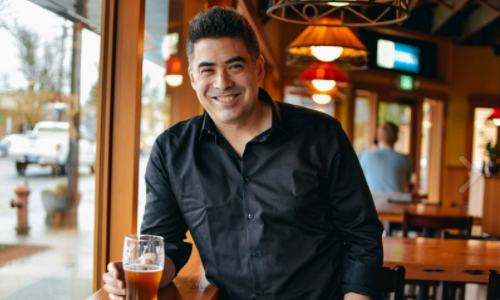 Kenji Bunch Kenji Bunch is one of America’s most engaging, influential, and prolific composers. Through an expansive blend of classical and vernacular styles, Bunch makes music that’s “clearly modern but deeply respectful of tradition and instantly enjoyable.” (The Washington Post) Deemed “emotional Americana,” (Oregon ArtsWatch) and infused with folk and roots influences, Bunch’s work has inspired a new genre classification: “Call it neo-American: casual on the outside, complex underneath, immediate and accessible to first-time listeners… Bunch’s music is shiningly original.” (The Oregonian) Hailed by The New York Times as “A Composer To Watch” and cited by Alex Ross in his seminal book The Rest Is Noise, Bunch’s wit, lyricism, unpredictability, and exquisite craftsmanship earn acclaim from audiences, performers, and critics alike. His interests in history, philosophy, and intergenerational and cross-cultural sharing of the arts reflect in his work. Varied style references in Bunch's writing mirror the diversity of global influence on American culture and reveal his deft ability to integrate bluegrass, hip hop, jazz, and funk idioms. Rich, tonal harmonies and drawn-out, satisfying builds characterize Bunch’s work and easily lend themselves to dance and film. Over sixty American orchestras have performed Bunch’s music, which “reache(s) into every section of the orchestra to create an intriguing mixture of sonic colors.” (NW Reverb) Recent works include commissions and premieres from the Seattle Symphony, the Oregon Symphony, the Lark Quartet, the Britt Festival, Music From Angel Fire, Chamber Music Northwest, the Eugene Ballet, and the Grant Park Music Festival. His extensive discography includes recordings on Sony/BMG, EMI Classics, Koch, RCA, and Naxos labels among others. Also an outstanding violist, Bunch was the first student ever to receive dual Bachelor and Master of Music degrees in viola and composition from The Juilliard School and was a founding member of the highly acclaimed ensembles Flux Quartet (1996-2002) and Ne(x)tworks (2003-2011). Bunch currently serves as Artistic Director of Fear No Music, and teaches viola, composition, and music theory at Portland State University, Reed College, and for the Portland Youth Philharmonic.
Kenji Bunch Kenji Bunch is one of America’s most engaging, influential, and prolific composers. Through an expansive blend of classical and vernacular styles, Bunch makes music that’s “clearly modern but deeply respectful of tradition and instantly enjoyable.” (The Washington Post) Deemed “emotional Americana,” (Oregon ArtsWatch) and infused with folk and roots influences, Bunch’s work has inspired a new genre classification: “Call it neo-American: casual on the outside, complex underneath, immediate and accessible to first-time listeners… Bunch’s music is shiningly original.” (The Oregonian) Hailed by The New York Times as “A Composer To Watch” and cited by Alex Ross in his seminal book The Rest Is Noise, Bunch’s wit, lyricism, unpredictability, and exquisite craftsmanship earn acclaim from audiences, performers, and critics alike. His interests in history, philosophy, and intergenerational and cross-cultural sharing of the arts reflect in his work. Varied style references in Bunch's writing mirror the diversity of global influence on American culture and reveal his deft ability to integrate bluegrass, hip hop, jazz, and funk idioms. Rich, tonal harmonies and drawn-out, satisfying builds characterize Bunch’s work and easily lend themselves to dance and film. Over sixty American orchestras have performed Bunch’s music, which “reache(s) into every section of the orchestra to create an intriguing mixture of sonic colors.” (NW Reverb) Recent works include commissions and premieres from the Seattle Symphony, the Oregon Symphony, the Lark Quartet, the Britt Festival, Music From Angel Fire, Chamber Music Northwest, the Eugene Ballet, and the Grant Park Music Festival. His extensive discography includes recordings on Sony/BMG, EMI Classics, Koch, RCA, and Naxos labels among others. Also an outstanding violist, Bunch was the first student ever to receive dual Bachelor and Master of Music degrees in viola and composition from The Juilliard School and was a founding member of the highly acclaimed ensembles Flux Quartet (1996-2002) and Ne(x)tworks (2003-2011). Bunch currently serves as Artistic Director of Fear No Music, and teaches viola, composition, and music theory at Portland State University, Reed College, and for the Portland Youth Philharmonic. -
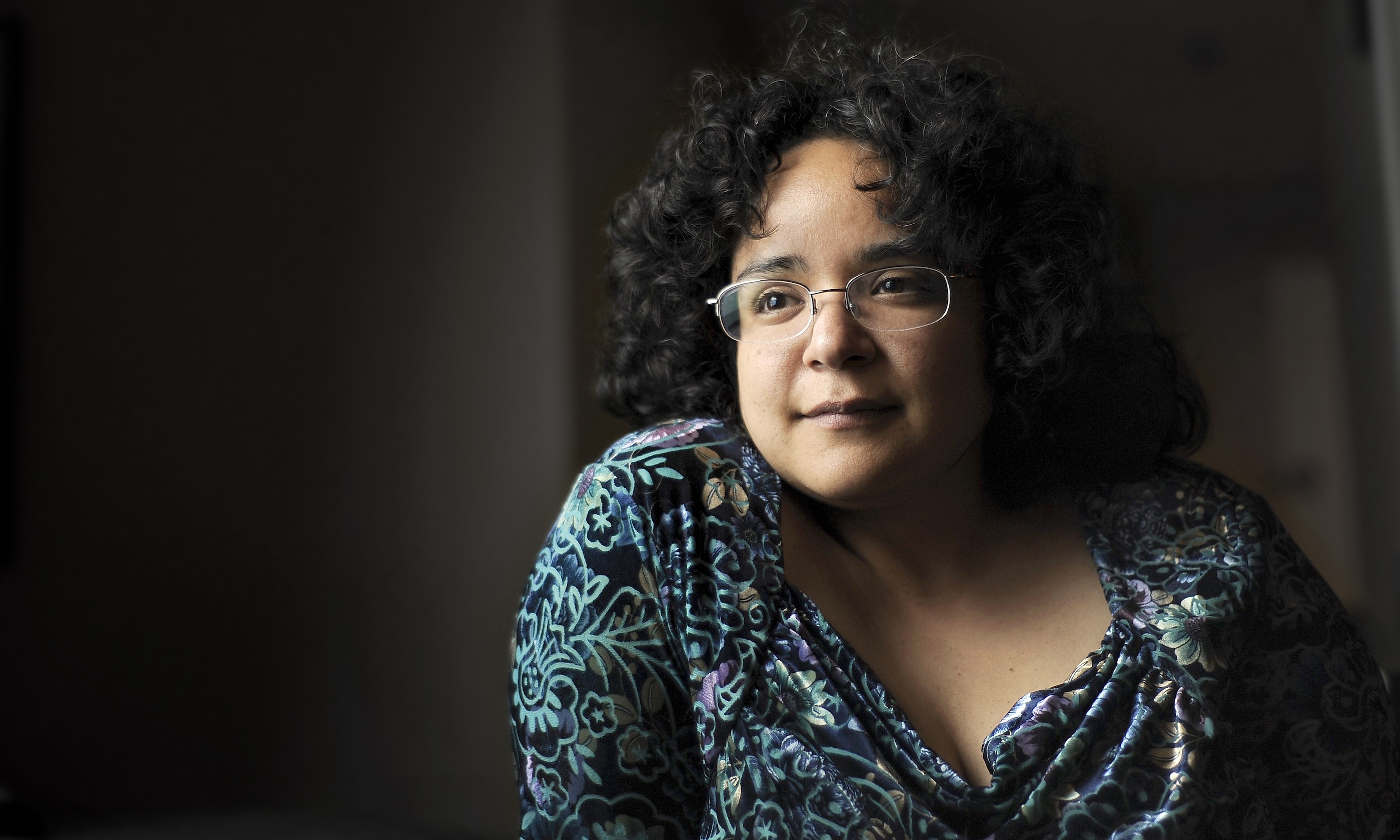 Gabriela Lena Frank Currently serving as Composer-in-Residence with the storied Philadelphia Orchestra and included in the Washington Post's list of the 35 most significant women composers in history (August, 2017), identity has always been at the center of composer/pianist Gabriela Lena Frank's music. Born in Berkeley, California (September, 1972), to a mother of mixed Peruvian/Chinese ancestry and a father of Lithuanian/Jewish descent, Gabriela explores her multicultural heritage through her compositions. Inspired by the works of Bela Bartók and Alberto Ginastera, Gabriela has traveled extensively throughout South America in creative exploration. Her music often reflects not only her own personal experience as a multi-racial Latina, but also refract her studies of Latin American cultures, incorporating poetry, mythology, and native musical styles into a western classical framework that is uniquely her own. Moreover, she writes, "There's usually a story line behind my music; a scenario or character." While the enjoyment of her works can be obtained solely from her music, the composer's program notes enhance the listener's experience, for they describe how a piano part mimics a marimba or pan-pipes, or how a movement is based on a particular type of folk song, where the singer is mockingly crying. Even a brief glance at her titles evokes specific imagery: Leyendas (Legends): An Andean Walkabout; La Llorona (The Crying Woman): Tone Poem for Viola and Orchestra; and Concertino Cusqueño (Concertino in the Cusco style). Gabriela's compositions also reflect her virtuosity as a pianist — when not composing, she is a sought-after performer, specializing in contemporary repertoire. In 2020, Gabriela was a recipient of the prestigious 25th anniversary Heinz Award in the Arts and Humanity category with an unrestricted cash prize of $250,000, a meaningful portion of which was donated by Gabriela to the Gabriela Lena Frank Creative Academy of Music. The award recognized Gabriela for breaking gender, disability, and cultural barriers in the classical music industry, and for her work as an activist on behalf of emerging composers of all demographics and aesthetics. Winner of a Latin Grammy and nominated for Grammys as both composer and pianist, Gabriela also holds a Guggenheim Fellowship and a USA Artist Fellowship given each year to fifty of the country’s finest artists. Her work has been described as “crafted with unself-conscious mastery” (Washington Post), “brilliantly effective” (New York Times), “a knockout” (Chicago Tribune) and “glorious” (Los Angeles Times). Gabriela is regularly commissioned by luminaries such as cellist Yo Yo Ma, soprano Dawn Upshaw, the King’s Singers, the Cuarteto Latinoamericano with guitarist Manuel Barrueco, Brooklyn Rider, and conductors Marin Alsop and Yannick Nézet-Séguin. She has also received orchestral commissions and performances from leading American orchestras including the Chicago Symphony, the Boston Symphony, the Atlanta Symphony, the Cleveland Orchestra, the Philadelphia Orchestra and the San Francisco Symphony. Before her current residency with the Philadelphia Orchestra for which she will compose the 45-minute Chronicles of the Picaflor (Hummingbird), in 2017 she completed her four-year tenure as composer-in-residence with the Detroit Symphony under maestro Leonard Slatkin, composing Walkabout: Concerto for Orchestra, as well as a second residency with the Houston Symphony under Andrés Orozco-Estrada for whom she composed the Conquest Requiem, a large-scale choral/orchestral work in Spanish, Latin, and Nahuatl, the language of the Aztecs. Gabriela’s most recent premieres have been Apu: Tone Poem for Orchestra commissioned by Carnegie Hall and premiered by the National Youth Orchestra of the United States under the baton of conductor Marin Alsop; and Suite Mestiza, a large-scale work for solo violin premiered by Movses Pogossian. In the season of 2022-23, San Diego Opera will premiere Gabriela’s first opera, The Last Dream of Frida, utilizing words by her frequent collaborator Pulitzer Prize winning playwright Nilo Cruz. In the 2018-19 school year, Gabriela also became visiting Artist-in-Residence at the Blair School of Music with Vanderbilt University, and currently serves as Composer-in-Residence at the Caines School of Music at Utah State University through 2024, adding to her long list of residencies at universities and conservatories through the US. Gabriela is the subject of several scholarly books including the W.W. Norton Anthology: The Musics of Latin America; Women of Influence in Contemporary Music: Nine American Composers (Scarecrow Press); and In her Own Words (University of Illinois Press). She is also the subject of several PBS documentaries including “Compadre Huashayo” regarding her work in Ecuador composing for the Orquestra de Instrumentos Andinos comprised of native highland instruments; and Música Mestiza, regarding a workshop she led at the University of Michigan composing for a virtuoso septet of a classical string quartet plus a trio of Andean panpipe players. Músic Mestiza, created by filmmaker Aric Hartvig, received an Emmy Nomination for best Documentary Feature in 2015. Civic outreach is an essential part of Gabriela’s work. She has volunteered extensively in hospitals and prisons, with her current focus on developing the music school program at Anderson Valley High School, a rural public school of modest means with a large Latino population in Boonville, CA. Gabriela is also a climate activist, co-authoring a regular column on climate action within the music industry for Chamber Music America Magazine and creating a Climate Commitment for GLFCAM. In 2017, Gabriela founded the award-winning Gabriela Lena Frank Creative Academy of Music whose history and mission can be found here. Gabriela attended Rice University in Houston, Texas, where she earned a B.A. (1994) and M.A. (1996). She studied composition with Sam Jones, and piano with Jeanne Kierman Fischer. At the University of Michigan, where she received a D.M.A. in composition in 2001, Gabriela studied with William Albright, William Bolcom, Leslie Bassett, and Michael Daugherty, and piano with Logan Skelton. She currently resides in Boonville, a small rural town in the Anderson Valley, with her husband Jeremy on their mountain farm, has a second home in her native Berkeley in the San Francisco Bay Area, and has traveled extensively in Andean South America. Gabriela is a member of G. Schirmer’s prestigious roster of artists, exclusively managed and published.
Gabriela Lena Frank Currently serving as Composer-in-Residence with the storied Philadelphia Orchestra and included in the Washington Post's list of the 35 most significant women composers in history (August, 2017), identity has always been at the center of composer/pianist Gabriela Lena Frank's music. Born in Berkeley, California (September, 1972), to a mother of mixed Peruvian/Chinese ancestry and a father of Lithuanian/Jewish descent, Gabriela explores her multicultural heritage through her compositions. Inspired by the works of Bela Bartók and Alberto Ginastera, Gabriela has traveled extensively throughout South America in creative exploration. Her music often reflects not only her own personal experience as a multi-racial Latina, but also refract her studies of Latin American cultures, incorporating poetry, mythology, and native musical styles into a western classical framework that is uniquely her own. Moreover, she writes, "There's usually a story line behind my music; a scenario or character." While the enjoyment of her works can be obtained solely from her music, the composer's program notes enhance the listener's experience, for they describe how a piano part mimics a marimba or pan-pipes, or how a movement is based on a particular type of folk song, where the singer is mockingly crying. Even a brief glance at her titles evokes specific imagery: Leyendas (Legends): An Andean Walkabout; La Llorona (The Crying Woman): Tone Poem for Viola and Orchestra; and Concertino Cusqueño (Concertino in the Cusco style). Gabriela's compositions also reflect her virtuosity as a pianist — when not composing, she is a sought-after performer, specializing in contemporary repertoire. In 2020, Gabriela was a recipient of the prestigious 25th anniversary Heinz Award in the Arts and Humanity category with an unrestricted cash prize of $250,000, a meaningful portion of which was donated by Gabriela to the Gabriela Lena Frank Creative Academy of Music. The award recognized Gabriela for breaking gender, disability, and cultural barriers in the classical music industry, and for her work as an activist on behalf of emerging composers of all demographics and aesthetics. Winner of a Latin Grammy and nominated for Grammys as both composer and pianist, Gabriela also holds a Guggenheim Fellowship and a USA Artist Fellowship given each year to fifty of the country’s finest artists. Her work has been described as “crafted with unself-conscious mastery” (Washington Post), “brilliantly effective” (New York Times), “a knockout” (Chicago Tribune) and “glorious” (Los Angeles Times). Gabriela is regularly commissioned by luminaries such as cellist Yo Yo Ma, soprano Dawn Upshaw, the King’s Singers, the Cuarteto Latinoamericano with guitarist Manuel Barrueco, Brooklyn Rider, and conductors Marin Alsop and Yannick Nézet-Séguin. She has also received orchestral commissions and performances from leading American orchestras including the Chicago Symphony, the Boston Symphony, the Atlanta Symphony, the Cleveland Orchestra, the Philadelphia Orchestra and the San Francisco Symphony. Before her current residency with the Philadelphia Orchestra for which she will compose the 45-minute Chronicles of the Picaflor (Hummingbird), in 2017 she completed her four-year tenure as composer-in-residence with the Detroit Symphony under maestro Leonard Slatkin, composing Walkabout: Concerto for Orchestra, as well as a second residency with the Houston Symphony under Andrés Orozco-Estrada for whom she composed the Conquest Requiem, a large-scale choral/orchestral work in Spanish, Latin, and Nahuatl, the language of the Aztecs. Gabriela’s most recent premieres have been Apu: Tone Poem for Orchestra commissioned by Carnegie Hall and premiered by the National Youth Orchestra of the United States under the baton of conductor Marin Alsop; and Suite Mestiza, a large-scale work for solo violin premiered by Movses Pogossian. In the season of 2022-23, San Diego Opera will premiere Gabriela’s first opera, The Last Dream of Frida, utilizing words by her frequent collaborator Pulitzer Prize winning playwright Nilo Cruz. In the 2018-19 school year, Gabriela also became visiting Artist-in-Residence at the Blair School of Music with Vanderbilt University, and currently serves as Composer-in-Residence at the Caines School of Music at Utah State University through 2024, adding to her long list of residencies at universities and conservatories through the US. Gabriela is the subject of several scholarly books including the W.W. Norton Anthology: The Musics of Latin America; Women of Influence in Contemporary Music: Nine American Composers (Scarecrow Press); and In her Own Words (University of Illinois Press). She is also the subject of several PBS documentaries including “Compadre Huashayo” regarding her work in Ecuador composing for the Orquestra de Instrumentos Andinos comprised of native highland instruments; and Música Mestiza, regarding a workshop she led at the University of Michigan composing for a virtuoso septet of a classical string quartet plus a trio of Andean panpipe players. Músic Mestiza, created by filmmaker Aric Hartvig, received an Emmy Nomination for best Documentary Feature in 2015. Civic outreach is an essential part of Gabriela’s work. She has volunteered extensively in hospitals and prisons, with her current focus on developing the music school program at Anderson Valley High School, a rural public school of modest means with a large Latino population in Boonville, CA. Gabriela is also a climate activist, co-authoring a regular column on climate action within the music industry for Chamber Music America Magazine and creating a Climate Commitment for GLFCAM. In 2017, Gabriela founded the award-winning Gabriela Lena Frank Creative Academy of Music whose history and mission can be found here. Gabriela attended Rice University in Houston, Texas, where she earned a B.A. (1994) and M.A. (1996). She studied composition with Sam Jones, and piano with Jeanne Kierman Fischer. At the University of Michigan, where she received a D.M.A. in composition in 2001, Gabriela studied with William Albright, William Bolcom, Leslie Bassett, and Michael Daugherty, and piano with Logan Skelton. She currently resides in Boonville, a small rural town in the Anderson Valley, with her husband Jeremy on their mountain farm, has a second home in her native Berkeley in the San Francisco Bay Area, and has traveled extensively in Andean South America. Gabriela is a member of G. Schirmer’s prestigious roster of artists, exclusively managed and published. -
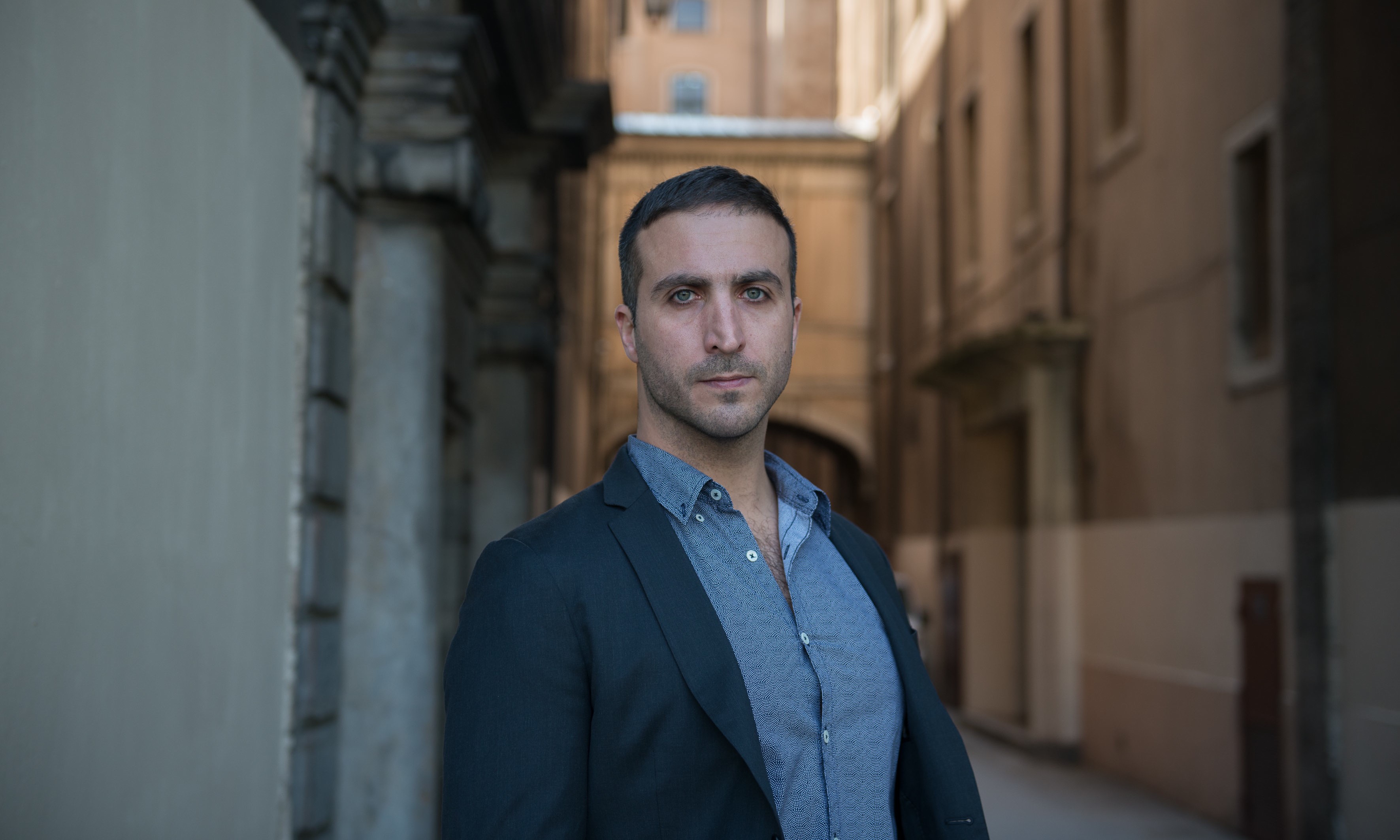 Felipe Lara Praised by the New York Times as "a gifted Brazilian-American modernist" whose works are “brilliantly realized”, “technically formidable, wildly varied”, and possess “voluptuous, elemental lyricism”, Felipe Lara’s work — which includes orchestral, chamber, vocal, film, electroacoustic, and popular music—engages in producing new musical contexts by means of (re)interpreting and translating acoustical and extra-musical properties of familiar source sonorities into project-specific forces. He often aspires to create self-similar relationships between the macro and micro-articulation of the musical experience and highlights the interdependence of acoustic music composition and technology, including the application of electroacoustic paradigms as catalysts for both entire structures and local textures. His music has been recently commissioned by leading soloists, ensembles, and institutions such as the Arditti Quartet (with ExperimentalStudio Freiburg SWR), Brentano Quartet (with Hsin-Yung Huang), Claire Chase, Conrad Tao, Donaueschinger Musiktage, Duo Diorama, Ensemble InterContemporain, Ensemble Modern, Helsinki Philharmonic Orchestra, International Contemporary Ensemble, Los Angeles Philharmonic, Ogni Suono, Rebekah Heller, and São Paulo Symphony Orchestra (Osesp), and also performed by the Amazonas Philharmonic, Asasello Quartet, Ensemble Recherche, David Fulmer, Ex Novo Ensemble, Ilan Volkov, JACK Quartet, Kammerensemble Neue Musik Berlin, Mivos Quartet, Netherlands Radio Chamber Philharmonic Hilversum, Nouvel Ensemble Moderne, Peter Eötvös, Steven Schick, and the Tanglewood Music Center Orchestra. His compositions have been presented by festivals and venues such as Aspen Music Festival, Centre Acanthes (Metz), Acht Brücken Festival (Kölner Philharmonie), Aldeburgh Music Festival (UK), Ars Musica (Belgium), The Art Institute of Chicago, Aspekte Festival (Salzburg), Asphalt Festival (Düsseldorf), Budapest Music Center, Carnegie Hall Neighborhood Concerts (New York), Crested Butte Music Festival (Time Spans), Darmstadt International Courses for New Musik, Donaueschinger Musiktage, Europalia (Belgium), Festival Música Nova (São Paulo), Fromm Players at Harvard, Hakuju Hall (Tokyo), Heidelberger Frühling, Huddersfield Contemporary Music Festival (UK), King’s Place (London), The Kitchen (New York), Luxembourg Philharmonie, Lincoln Center’s Mostly Mozart Festival (New York), New York Philharmonic Biennial, Philharmonie de Paris, Phillips Collection (Washington, DC), Queen Elizabeth Hall (London), Roulette (Brooklyn), Sala Cecília Meireles (Rio de Janeiro), Tanglewood’s Festival for Contemporary Music, Teatro Amazonas (Manaus), Teatro La Fenice (Venice), and Theatro Municipal (São Paulo). While most of his works are conceived for the concert hall, he has recently collaborated with electonic dance music producer Jesse Houg (The Scumfrog) and flutist Claire Chase on a new work to be premiered at Burning Man 2017, written string arrangements for forthcoming album Conversas, Desenhos, Pinturas, by Brazilian popular music artists Milton Nascimento and Ricardo Vogt (also featuring bassist Esperanza Spalding and pianist Leo Genovese), as well as composed the score for the feature film A Fera Na Selva (2017), a Brazilian production and adaptation of Henry James' The Beast in the Jungle, directed by Paulo Betti, Eliane Giardini, Lauro Escorel, with associate producer and Oscar/Golden Globe/BAFTA/Cannes Palm d'Or nominee Fernando Meirelles (City of God, Blindness, The Constant Gardner,2016 Rio Olympics opening ceremony), which was premiered as an official selection in the Festival de 2017 Gramado de Cinema, Brazil. Since 2009, he has been actively engaging with local artists, non-profit organizations, and public school students from the Brazilian Mantiqueira Forrest area on interdiciplinary and collaborative works that focus on the local APAs (Areas of Environmental Protection), with the common theme of sustainability. The exchange culminated in such projects as Desenhando na Mata (2009), where students painted their impression of Lara's work in real time onto large panels; Nos Sons da APA (2011), a DVD recording of a conducted community improvisation with found objects; Entrando no Clima da APA (2012), a collective instalation with audio/video projections; and A APA de São Francisco Xavier em Cena (2013), where his hour-long acousmatic work composed of local sounds APAcusmática was presented on modular set designs created by the students. The projects were presented in the local town hall, Community Pavillion, as well as at Itaú Cultural (São Paulo), and RIO+20, United Nations Conference on Sustainable Development (Rio de Janeiro). The recipient of a 2015 Radcliffe Institute for Advanced Study Fellowship, from Harvard University, he has been awarded an invitational fellowship from the Civitella Ranieri Foundation (2014), composition prize from Funarte (Brazilian Ministry of Culture, 2014), Master Artist Award from the National Association of Latino Arts and Culture (2013), Kanter/Mivos String Quartet Prize (2011), Staubach Prize from IMD (Darmstadt, 2008), Dal Niente International Call-for-Scores, First Prize in Orchestra Composition from the Biennial for Brazilian Contemporary Music (2005), as well as commissions from the Fromm Music Foundation at Harvard University (2011) and the Koussevitzky Music Foundation at Library of Congress (2016). He was also a finalist for the 2014 Rolex Mentor and Protégé Arts Initiative (Geneva, 2014). Recent recordings include Metafagote on Rebekah Heller’s album also titled Metafagote (New York, Tundra Records, 2017), Parábolas na Caverna and Meditation and Calligraphy on Claire Chase’s Density 2036 (Berkeley, Meyer Sound 2017), Tran(slate) on JACK Quartet/Áltavoz composers (New York, New Focus Recordings 2014) and Progetto Prometeo – omaggio a Luigi Nono ed Emilio Vedova by Ex Novo Ensemble (Venice, Rosenfinger 2009), Corde Vocale on Mivos Quartet’s Reappearances (New York, Carrier Records 2013), Corde Vocale by Arditti Quartet and Prisma by Duo Diorama on Quatro Visões Contemporâneas na Música Paulista (Campinas, Gravina 2008), and Sonata de Desintoxicação on Karin Fernandes’ Cria, which was awarded ‘album of the year’ by Brazilian Revista Concerto (São Paulo, Proac 2014). He holds a PhD in Music Composition from New York University (Graduate School of Arts and Science) where he was a Henry M. MacCracken Fellow, a Masters from Tufts University, and a Bachelors degree from Berklee College of Music. His main teachers were Louis Karchin, Tristan Murail, Mario Davidovsky, John McDonald, Vuk Kulenovic, and Alla Elana Cohen. Additionally, he had lessons with Brian Ferneyhough, Chaya Czernowin, David Rakowski, Helmut Lachenmann, Kaija Saariaho, Marco Stroppa, Michel Jarrell, Philippe Leroux, Wolfgang Rihm, and Yan Maresz privately and in international festivals and academies such as the Atlantic Center for the Arts (New Smyrna Beach/FL), Centre Acanthes (Metz/France), Domaine Forget (Saint-Irénée/Canada), Hindemith Institute (Blonay/Switzerland), International Summer Courses for New Music Darmstadt (Darmstadt/Germany), and June in Buffallo (SUNY Buffalo). Having previously taught at New York University’s Faculty of Arts and Science, he has been visiting lecturer at Federal University of Bahia (Salvador, Brazil) and is currently Associate Professor at Berklee College of Music's Boston Conservatory, Faculty Artist at John Hopkins University's Peabody Institute, and Visiting Faculty, Lecturer on Music, at Harvard's Department of Music, where he was awarded a Harvard Excellence in Teaching Award (2017).
Felipe Lara Praised by the New York Times as "a gifted Brazilian-American modernist" whose works are “brilliantly realized”, “technically formidable, wildly varied”, and possess “voluptuous, elemental lyricism”, Felipe Lara’s work — which includes orchestral, chamber, vocal, film, electroacoustic, and popular music—engages in producing new musical contexts by means of (re)interpreting and translating acoustical and extra-musical properties of familiar source sonorities into project-specific forces. He often aspires to create self-similar relationships between the macro and micro-articulation of the musical experience and highlights the interdependence of acoustic music composition and technology, including the application of electroacoustic paradigms as catalysts for both entire structures and local textures. His music has been recently commissioned by leading soloists, ensembles, and institutions such as the Arditti Quartet (with ExperimentalStudio Freiburg SWR), Brentano Quartet (with Hsin-Yung Huang), Claire Chase, Conrad Tao, Donaueschinger Musiktage, Duo Diorama, Ensemble InterContemporain, Ensemble Modern, Helsinki Philharmonic Orchestra, International Contemporary Ensemble, Los Angeles Philharmonic, Ogni Suono, Rebekah Heller, and São Paulo Symphony Orchestra (Osesp), and also performed by the Amazonas Philharmonic, Asasello Quartet, Ensemble Recherche, David Fulmer, Ex Novo Ensemble, Ilan Volkov, JACK Quartet, Kammerensemble Neue Musik Berlin, Mivos Quartet, Netherlands Radio Chamber Philharmonic Hilversum, Nouvel Ensemble Moderne, Peter Eötvös, Steven Schick, and the Tanglewood Music Center Orchestra. His compositions have been presented by festivals and venues such as Aspen Music Festival, Centre Acanthes (Metz), Acht Brücken Festival (Kölner Philharmonie), Aldeburgh Music Festival (UK), Ars Musica (Belgium), The Art Institute of Chicago, Aspekte Festival (Salzburg), Asphalt Festival (Düsseldorf), Budapest Music Center, Carnegie Hall Neighborhood Concerts (New York), Crested Butte Music Festival (Time Spans), Darmstadt International Courses for New Musik, Donaueschinger Musiktage, Europalia (Belgium), Festival Música Nova (São Paulo), Fromm Players at Harvard, Hakuju Hall (Tokyo), Heidelberger Frühling, Huddersfield Contemporary Music Festival (UK), King’s Place (London), The Kitchen (New York), Luxembourg Philharmonie, Lincoln Center’s Mostly Mozart Festival (New York), New York Philharmonic Biennial, Philharmonie de Paris, Phillips Collection (Washington, DC), Queen Elizabeth Hall (London), Roulette (Brooklyn), Sala Cecília Meireles (Rio de Janeiro), Tanglewood’s Festival for Contemporary Music, Teatro Amazonas (Manaus), Teatro La Fenice (Venice), and Theatro Municipal (São Paulo). While most of his works are conceived for the concert hall, he has recently collaborated with electonic dance music producer Jesse Houg (The Scumfrog) and flutist Claire Chase on a new work to be premiered at Burning Man 2017, written string arrangements for forthcoming album Conversas, Desenhos, Pinturas, by Brazilian popular music artists Milton Nascimento and Ricardo Vogt (also featuring bassist Esperanza Spalding and pianist Leo Genovese), as well as composed the score for the feature film A Fera Na Selva (2017), a Brazilian production and adaptation of Henry James' The Beast in the Jungle, directed by Paulo Betti, Eliane Giardini, Lauro Escorel, with associate producer and Oscar/Golden Globe/BAFTA/Cannes Palm d'Or nominee Fernando Meirelles (City of God, Blindness, The Constant Gardner,2016 Rio Olympics opening ceremony), which was premiered as an official selection in the Festival de 2017 Gramado de Cinema, Brazil. Since 2009, he has been actively engaging with local artists, non-profit organizations, and public school students from the Brazilian Mantiqueira Forrest area on interdiciplinary and collaborative works that focus on the local APAs (Areas of Environmental Protection), with the common theme of sustainability. The exchange culminated in such projects as Desenhando na Mata (2009), where students painted their impression of Lara's work in real time onto large panels; Nos Sons da APA (2011), a DVD recording of a conducted community improvisation with found objects; Entrando no Clima da APA (2012), a collective instalation with audio/video projections; and A APA de São Francisco Xavier em Cena (2013), where his hour-long acousmatic work composed of local sounds APAcusmática was presented on modular set designs created by the students. The projects were presented in the local town hall, Community Pavillion, as well as at Itaú Cultural (São Paulo), and RIO+20, United Nations Conference on Sustainable Development (Rio de Janeiro). The recipient of a 2015 Radcliffe Institute for Advanced Study Fellowship, from Harvard University, he has been awarded an invitational fellowship from the Civitella Ranieri Foundation (2014), composition prize from Funarte (Brazilian Ministry of Culture, 2014), Master Artist Award from the National Association of Latino Arts and Culture (2013), Kanter/Mivos String Quartet Prize (2011), Staubach Prize from IMD (Darmstadt, 2008), Dal Niente International Call-for-Scores, First Prize in Orchestra Composition from the Biennial for Brazilian Contemporary Music (2005), as well as commissions from the Fromm Music Foundation at Harvard University (2011) and the Koussevitzky Music Foundation at Library of Congress (2016). He was also a finalist for the 2014 Rolex Mentor and Protégé Arts Initiative (Geneva, 2014). Recent recordings include Metafagote on Rebekah Heller’s album also titled Metafagote (New York, Tundra Records, 2017), Parábolas na Caverna and Meditation and Calligraphy on Claire Chase’s Density 2036 (Berkeley, Meyer Sound 2017), Tran(slate) on JACK Quartet/Áltavoz composers (New York, New Focus Recordings 2014) and Progetto Prometeo – omaggio a Luigi Nono ed Emilio Vedova by Ex Novo Ensemble (Venice, Rosenfinger 2009), Corde Vocale on Mivos Quartet’s Reappearances (New York, Carrier Records 2013), Corde Vocale by Arditti Quartet and Prisma by Duo Diorama on Quatro Visões Contemporâneas na Música Paulista (Campinas, Gravina 2008), and Sonata de Desintoxicação on Karin Fernandes’ Cria, which was awarded ‘album of the year’ by Brazilian Revista Concerto (São Paulo, Proac 2014). He holds a PhD in Music Composition from New York University (Graduate School of Arts and Science) where he was a Henry M. MacCracken Fellow, a Masters from Tufts University, and a Bachelors degree from Berklee College of Music. His main teachers were Louis Karchin, Tristan Murail, Mario Davidovsky, John McDonald, Vuk Kulenovic, and Alla Elana Cohen. Additionally, he had lessons with Brian Ferneyhough, Chaya Czernowin, David Rakowski, Helmut Lachenmann, Kaija Saariaho, Marco Stroppa, Michel Jarrell, Philippe Leroux, Wolfgang Rihm, and Yan Maresz privately and in international festivals and academies such as the Atlantic Center for the Arts (New Smyrna Beach/FL), Centre Acanthes (Metz/France), Domaine Forget (Saint-Irénée/Canada), Hindemith Institute (Blonay/Switzerland), International Summer Courses for New Music Darmstadt (Darmstadt/Germany), and June in Buffallo (SUNY Buffalo). Having previously taught at New York University’s Faculty of Arts and Science, he has been visiting lecturer at Federal University of Bahia (Salvador, Brazil) and is currently Associate Professor at Berklee College of Music's Boston Conservatory, Faculty Artist at John Hopkins University's Peabody Institute, and Visiting Faculty, Lecturer on Music, at Harvard's Department of Music, where he was awarded a Harvard Excellence in Teaching Award (2017). -
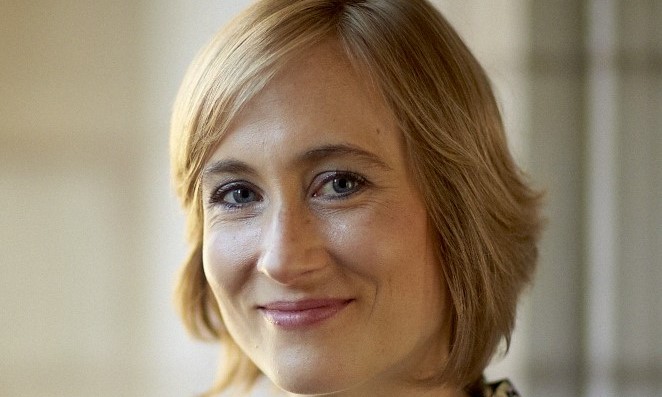 Hannah Lash Ms. Lash’s compact sequence of pale brush strokes, ghostly keening and punchy outbursts was striking and resourceful; you hoped to hear it again… – Steve Smith, The New York Times Hailed by the New York Times as “striking and resourceful…handsomely brooding,” Hannah Lash’s music has been performed at Carnegie Hall, Los Angeles’ Walt Disney Concert Hall, Lincoln Center, the Times Center in Manhattan, the Chicago Art Institute, Tanglewood Music Center, Harvard University, The Aspen Music Festival & School, The Chelsea Art Museum, and on the American Opera Project’s stage in New York City. Commissions include The Fromm Foundation, the Boston Symphony Orchestra, Saint Paul Chamber Orchestra, Carnegie Hall, Chamber Music Northwest, the McKim Fund in the Library of Congress, Cabrillo Festival of Contemporary Music, American Composers Orchestra, Columbia University’s Miller Theatre, The Naumburg Foundation, the Los Angeles Chamber Orchestra, the Arditti Quartet, the Great Lakes Chamber Music Festival, the Colorado Music Festival, and the Aspen Music Festival and School, among many others. Lash has received numerous honors and prizes, including Rappaport Prize for Music Composition (2018), ASCAP Morton Gould Young Composer Award (2011), a Charles Ives Scholarship (2011) and Fellowship (2016) from the American Academy of Arts and Letters, a Fromm Foundation Commission, a Chamber Music America Classical Commissioning Grant, a fellowship from Yaddo Artist Colony, the Naumburg Prize in Composition, the Barnard Rogers Prize in Composition, the Bernard and Rose Sernoffsky Prize in Composition, and numerous academic awards. Her orchestral work Furthermore was selected by the American Composers Orchestra for the 2010 Underwood New Music Readings. Her chamber opera, Blood Rose, was presented by New York City Opera’s VOX in the spring of 2011. New York Times music critic Steve Smith praised Lash’s work for the JACK Quartet, Frayed: “Ms. Lash’s compact sequence of pale brush strokes, ghostly keening and punchy outbursts was striking and resourceful; you hoped to hear it again…” Esteemed music critic Bruce Hodges lauded Lash’s piece Stalk for solo harp as being “appealing…florid, and introspective.” In addition to performances of her music in the USA, Lash’s music is well known internationally. In April of 2008, her string quartet Four Still was performed in Kyev in the Ukraine’s largest international new music festival, “Musical Premieres of the Season,” curated by Carson Cooman. In the summer of 2010, her piece Unclose was premiered by members of Eighth Blackbird at the MusicX festival in Blonay, Switzerland.In 2016, her chamber orchestra work This Ease saw its German premiere and was selected as “audience favorite” in performances by the Philharmonisches Staatsorchester Mainz, conducted by Hermann Bäumer. In 2019, her work was featured at the Presteigne Festival in Wales, and in 2021 she anticipates her work The Nature of Breaking to be performed at the Alba Festival in Alba, Italy. She will also be featured in a Composer Portrait in Mainz, Germany in 2021, where multiple Lash works will be performed over a week. Recent premieres include the multi-movement orchestral work The Voynich Symphony by the New Haven Symphony, Form and Postlude for Chamber Music Northwest, a new Requiem for the Yale Choral Artists, How to Remember Seeds for The Calidore String Quartet, Three Shades Without Angles, for flute, viola and harp, by the Boston Symphony Chamber Players, Two Movements for violin and piano, commissioned by the Library of Congress for Ensemble Intercontemporain, and a new chamber opera, Beowulf, for Guerilla Opera, as well as several new orchestral works: Chaconnes, for the New York Philharmonic’s Biennial, Eating Flowers, for the Cabrillo Festival of Contemporary Music, Nymphs, for the Alabama Symphony Orchestra, and This Ease, for the Los Angeles Chamber Orchestra, as well as two concerti for harp premiered by the American Composers Orchestra (Concerto No. 1 for Harp and Chamber Orchestra) and the Colorado Music Festival (Concerto No. 2 for Harp and Orchestra), both with Lash as soloist. Other recent premieres include God Music Bug Music (2011) with the Minnesota Orchestra, the monodrama Stoned Prince (2013) by loadbang, Subtilior Lamento (2012) with the Da Capo Chamber Players at Carnegie Hall, and Glockenliebe (2012), for three glockenspiels, with Talujon Percussion. Her 2011 orchestral work, Hush, was featured on the Los Angeles Philharmonic’s 2013 Brooklyn Festival. In 2016, Lash was honored with a Composer Portrait Concert at Columbia University’s Miller Theatre, which included newly commissioned works for pianist Lisa Moore (Six Etudes and a Dream) and loadbang (Music for Eight Lungs). In the 2017-2018 season, Lash’s Piano Concerto No. 1 “In Pursuit of Flying” was given its premiere performances by Jeremy Denk and the Saint Paul Chamber Orchestra, and the Atlantic Classical Orchestra debuted a new orchestral work, Facets of Motion. In October of 2019, tenor Paul Appleby gave the premiere of Songs of Imagined Love, a new song cycle commissioned by Carnegie Hall. The 2019-20 season saw a number of exciting premieres, including Hannah Lash’s chamber opera, Desire, which received great acclaim following its premiere at Miller Theatre in October 2019, a Double Concerto for piano and harp performed by the composer and pianist Jeremy Denk with the Naples Philharmonic, and Forestallings, a pairing piece for Beethoven’s Second Symphony for the Indianapolis Symphony Orchestra. Lash obtained her Ph.D in Composition from Harvard University in 2010. She has held teaching positions at Harvard University (Teaching Fellow), at Alfred University (Guest Professor of Composition), and currently serves on the composition faculty at Yale University School of Music.
Hannah Lash Ms. Lash’s compact sequence of pale brush strokes, ghostly keening and punchy outbursts was striking and resourceful; you hoped to hear it again… – Steve Smith, The New York Times Hailed by the New York Times as “striking and resourceful…handsomely brooding,” Hannah Lash’s music has been performed at Carnegie Hall, Los Angeles’ Walt Disney Concert Hall, Lincoln Center, the Times Center in Manhattan, the Chicago Art Institute, Tanglewood Music Center, Harvard University, The Aspen Music Festival & School, The Chelsea Art Museum, and on the American Opera Project’s stage in New York City. Commissions include The Fromm Foundation, the Boston Symphony Orchestra, Saint Paul Chamber Orchestra, Carnegie Hall, Chamber Music Northwest, the McKim Fund in the Library of Congress, Cabrillo Festival of Contemporary Music, American Composers Orchestra, Columbia University’s Miller Theatre, The Naumburg Foundation, the Los Angeles Chamber Orchestra, the Arditti Quartet, the Great Lakes Chamber Music Festival, the Colorado Music Festival, and the Aspen Music Festival and School, among many others. Lash has received numerous honors and prizes, including Rappaport Prize for Music Composition (2018), ASCAP Morton Gould Young Composer Award (2011), a Charles Ives Scholarship (2011) and Fellowship (2016) from the American Academy of Arts and Letters, a Fromm Foundation Commission, a Chamber Music America Classical Commissioning Grant, a fellowship from Yaddo Artist Colony, the Naumburg Prize in Composition, the Barnard Rogers Prize in Composition, the Bernard and Rose Sernoffsky Prize in Composition, and numerous academic awards. Her orchestral work Furthermore was selected by the American Composers Orchestra for the 2010 Underwood New Music Readings. Her chamber opera, Blood Rose, was presented by New York City Opera’s VOX in the spring of 2011. New York Times music critic Steve Smith praised Lash’s work for the JACK Quartet, Frayed: “Ms. Lash’s compact sequence of pale brush strokes, ghostly keening and punchy outbursts was striking and resourceful; you hoped to hear it again…” Esteemed music critic Bruce Hodges lauded Lash’s piece Stalk for solo harp as being “appealing…florid, and introspective.” In addition to performances of her music in the USA, Lash’s music is well known internationally. In April of 2008, her string quartet Four Still was performed in Kyev in the Ukraine’s largest international new music festival, “Musical Premieres of the Season,” curated by Carson Cooman. In the summer of 2010, her piece Unclose was premiered by members of Eighth Blackbird at the MusicX festival in Blonay, Switzerland.In 2016, her chamber orchestra work This Ease saw its German premiere and was selected as “audience favorite” in performances by the Philharmonisches Staatsorchester Mainz, conducted by Hermann Bäumer. In 2019, her work was featured at the Presteigne Festival in Wales, and in 2021 she anticipates her work The Nature of Breaking to be performed at the Alba Festival in Alba, Italy. She will also be featured in a Composer Portrait in Mainz, Germany in 2021, where multiple Lash works will be performed over a week. Recent premieres include the multi-movement orchestral work The Voynich Symphony by the New Haven Symphony, Form and Postlude for Chamber Music Northwest, a new Requiem for the Yale Choral Artists, How to Remember Seeds for The Calidore String Quartet, Three Shades Without Angles, for flute, viola and harp, by the Boston Symphony Chamber Players, Two Movements for violin and piano, commissioned by the Library of Congress for Ensemble Intercontemporain, and a new chamber opera, Beowulf, for Guerilla Opera, as well as several new orchestral works: Chaconnes, for the New York Philharmonic’s Biennial, Eating Flowers, for the Cabrillo Festival of Contemporary Music, Nymphs, for the Alabama Symphony Orchestra, and This Ease, for the Los Angeles Chamber Orchestra, as well as two concerti for harp premiered by the American Composers Orchestra (Concerto No. 1 for Harp and Chamber Orchestra) and the Colorado Music Festival (Concerto No. 2 for Harp and Orchestra), both with Lash as soloist. Other recent premieres include God Music Bug Music (2011) with the Minnesota Orchestra, the monodrama Stoned Prince (2013) by loadbang, Subtilior Lamento (2012) with the Da Capo Chamber Players at Carnegie Hall, and Glockenliebe (2012), for three glockenspiels, with Talujon Percussion. Her 2011 orchestral work, Hush, was featured on the Los Angeles Philharmonic’s 2013 Brooklyn Festival. In 2016, Lash was honored with a Composer Portrait Concert at Columbia University’s Miller Theatre, which included newly commissioned works for pianist Lisa Moore (Six Etudes and a Dream) and loadbang (Music for Eight Lungs). In the 2017-2018 season, Lash’s Piano Concerto No. 1 “In Pursuit of Flying” was given its premiere performances by Jeremy Denk and the Saint Paul Chamber Orchestra, and the Atlantic Classical Orchestra debuted a new orchestral work, Facets of Motion. In October of 2019, tenor Paul Appleby gave the premiere of Songs of Imagined Love, a new song cycle commissioned by Carnegie Hall. The 2019-20 season saw a number of exciting premieres, including Hannah Lash’s chamber opera, Desire, which received great acclaim following its premiere at Miller Theatre in October 2019, a Double Concerto for piano and harp performed by the composer and pianist Jeremy Denk with the Naples Philharmonic, and Forestallings, a pairing piece for Beethoven’s Second Symphony for the Indianapolis Symphony Orchestra. Lash obtained her Ph.D in Composition from Harvard University in 2010. She has held teaching positions at Harvard University (Teaching Fellow), at Alfred University (Guest Professor of Composition), and currently serves on the composition faculty at Yale University School of Music. -
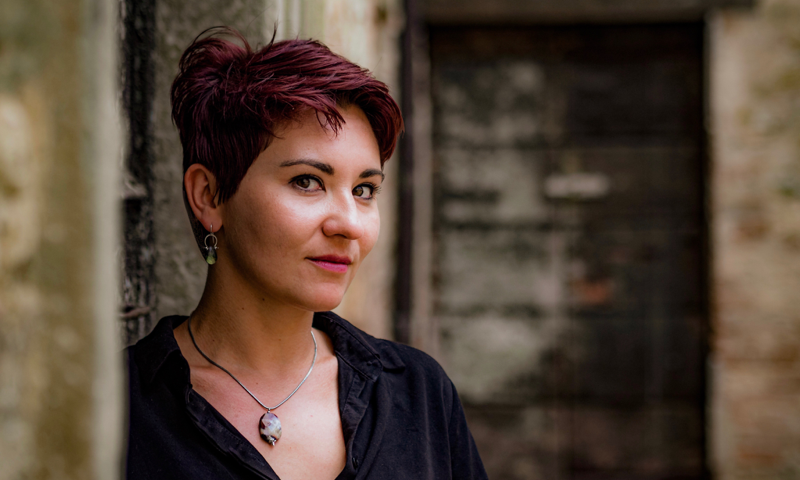 Nina C. Young The music of composer Nina C. Young (b.1984) is characterized by an acute sensitivity to tone color, manifested in aural images of vibrant, arresting immediacy. Her musical voice mixes elements of the classical canon, modernism, spectralism, American experimentalism, minimalism, electronic music, and popular idioms. Her projects, ranging from concert pieces to interactive installations, strive to create unique sonic environments that explore aural architectures, resonance, and ephemera. Young’s works have been presented by Carnegie Hall, the National Gallery, the Whitney Museum, LA Phil’s Next on Grand, and the St. Paul Chamber Orchestra’s Liquid Music Series. Her music has garnered international acclaim through performances by the American Composers Orchestra, the Milwaukee Symphony, the Minnesota Orchestra, the New York Philharmonic, the Philadelphia Orchestra, the Phoenix Symphony, Le Nouvel Ensemble Moderne, the Aizuri Quartet, Either/Or, the JACK Quartet, wild Up, and Yarn/Wire. Winner of the 2015-16 Rome Prize at the American Academy in Rome, Young has also received a 2021 Guggenheim Fellowship, a Koussevitzky Commission, a Civitella Ranieri Foundation Fellowship, a Charles Ives Scholarship from the American Academy of Arts and Letters, the Salvatore Martirano Memorial Award, Aspen Music Festival's Jacob Druckman Prize, and honors from BMI, IAWM, and ASCAP/SEAMUS. In 2019 Carnegie Hall commissioned Out of Whose Womb Came the Ice with the American Composers Orchestra: for baritone, orchestra, electronics, and generative video, commenting on the ill-fated Ernest Shackleton Trans-Antarctic Expedition 1914-17. Other recent projects include Tread Softly that opened the NY Philharmonic’s Project 19, a violin concerto for Jennifer Koh from the Philadelphia Orchestra, and The Glow that Illuminates, The Glare that Obscures for the American Brass Quintet alongside an immersive audio-visual installation version commissioned by EMPAC showcasing a vertical orientation of their wavefield synthesis audio system. A graduate of McGill University and MIT, Young completed her DMA at Columbia University. She is an Assistant Professor of Composition at USC's Thornton School of Music. She serves as Co-Artistic Director of New York’s Ensemble Échappé. Her music is published by Peermusic Classical.
Nina C. Young The music of composer Nina C. Young (b.1984) is characterized by an acute sensitivity to tone color, manifested in aural images of vibrant, arresting immediacy. Her musical voice mixes elements of the classical canon, modernism, spectralism, American experimentalism, minimalism, electronic music, and popular idioms. Her projects, ranging from concert pieces to interactive installations, strive to create unique sonic environments that explore aural architectures, resonance, and ephemera. Young’s works have been presented by Carnegie Hall, the National Gallery, the Whitney Museum, LA Phil’s Next on Grand, and the St. Paul Chamber Orchestra’s Liquid Music Series. Her music has garnered international acclaim through performances by the American Composers Orchestra, the Milwaukee Symphony, the Minnesota Orchestra, the New York Philharmonic, the Philadelphia Orchestra, the Phoenix Symphony, Le Nouvel Ensemble Moderne, the Aizuri Quartet, Either/Or, the JACK Quartet, wild Up, and Yarn/Wire. Winner of the 2015-16 Rome Prize at the American Academy in Rome, Young has also received a 2021 Guggenheim Fellowship, a Koussevitzky Commission, a Civitella Ranieri Foundation Fellowship, a Charles Ives Scholarship from the American Academy of Arts and Letters, the Salvatore Martirano Memorial Award, Aspen Music Festival's Jacob Druckman Prize, and honors from BMI, IAWM, and ASCAP/SEAMUS. In 2019 Carnegie Hall commissioned Out of Whose Womb Came the Ice with the American Composers Orchestra: for baritone, orchestra, electronics, and generative video, commenting on the ill-fated Ernest Shackleton Trans-Antarctic Expedition 1914-17. Other recent projects include Tread Softly that opened the NY Philharmonic’s Project 19, a violin concerto for Jennifer Koh from the Philadelphia Orchestra, and The Glow that Illuminates, The Glare that Obscures for the American Brass Quintet alongside an immersive audio-visual installation version commissioned by EMPAC showcasing a vertical orientation of their wavefield synthesis audio system. A graduate of McGill University and MIT, Young completed her DMA at Columbia University. She is an Assistant Professor of Composition at USC's Thornton School of Music. She serves as Co-Artistic Director of New York’s Ensemble Échappé. Her music is published by Peermusic Classical. -
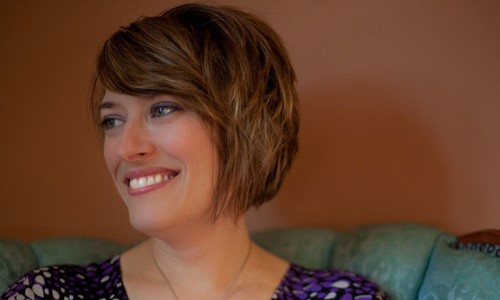 Elainie Lillios Acclaimed as one of the “contemporary masters of the medium” by MIT Press’s Computer Music Journal, electroacoustic composer Elainie Lillios creates works that reflect her fascination with listening, sound, space, time, immersion and anecdote. Her compositions include stereo, multi channel, and Ambisonic fixed media works, instrument(s) with live interactive electronics, collaborative experimental audio/visual animations, and installations. Her work has been recognized internationally and nationally through awards including a 2018 Fromm Foundation Commission, 2016 Barlow Endowment Commission, 2013-14 Fulbright Award, First Prize in the Concours Internationale de Bourges, Areon Flutes International Composition Competition, Electroacoustic Piano International Competition, and Medea Electronique “Saxotronics” Competition, and Second Prize in the Destellos International Electroacoustic Competition. She has also received awards from the Concurso Internacional de Música Electroacústica de São Paulo, Concorso Internazionale Russolo, Pierre Schaeffer Competition, and La Muse en Circuit. She has received grants/commissions from INA/GRM, Rèseaux, International Computer Music Association, La Muse en Circuit, NAISA, ASCAP/SEAMUS, LSU’s Center for Computation and Technology, Sonic Arts Research Centre, Ohio Arts Council, and National Foundation for the Advancement of the Arts. She has been a special guest at the Groupe de Recherche Musicales, Rien à Voir, festival l’espace du son, June in Buffalo, and at other locations in the United States and abroad. Reviews of Elainie’s debut solo electroacoustic compact disc Entre Espaces (Empreintes DIGITALes) praise her work for being “… elegantly assembled, and immersive enough to stand the test of deep listening” and as “…a journey not to be missed.” Her fixed and instrumental works also appear on Centaur, MSR Classics, StudioPANaroma, La Muse en Circuit, New Adventures in Sound Art, SEAMUS, Irritable Hedgehog and Leonardo Music Journal. Elainie serves a Director of Composition Activities for the SPLICE institute (splice music.org) and holds the rank of Professor of Creative Arts Excellence at Bowling Green State University in Ohio.
Elainie Lillios Acclaimed as one of the “contemporary masters of the medium” by MIT Press’s Computer Music Journal, electroacoustic composer Elainie Lillios creates works that reflect her fascination with listening, sound, space, time, immersion and anecdote. Her compositions include stereo, multi channel, and Ambisonic fixed media works, instrument(s) with live interactive electronics, collaborative experimental audio/visual animations, and installations. Her work has been recognized internationally and nationally through awards including a 2018 Fromm Foundation Commission, 2016 Barlow Endowment Commission, 2013-14 Fulbright Award, First Prize in the Concours Internationale de Bourges, Areon Flutes International Composition Competition, Electroacoustic Piano International Competition, and Medea Electronique “Saxotronics” Competition, and Second Prize in the Destellos International Electroacoustic Competition. She has also received awards from the Concurso Internacional de Música Electroacústica de São Paulo, Concorso Internazionale Russolo, Pierre Schaeffer Competition, and La Muse en Circuit. She has received grants/commissions from INA/GRM, Rèseaux, International Computer Music Association, La Muse en Circuit, NAISA, ASCAP/SEAMUS, LSU’s Center for Computation and Technology, Sonic Arts Research Centre, Ohio Arts Council, and National Foundation for the Advancement of the Arts. She has been a special guest at the Groupe de Recherche Musicales, Rien à Voir, festival l’espace du son, June in Buffalo, and at other locations in the United States and abroad. Reviews of Elainie’s debut solo electroacoustic compact disc Entre Espaces (Empreintes DIGITALes) praise her work for being “… elegantly assembled, and immersive enough to stand the test of deep listening” and as “…a journey not to be missed.” Her fixed and instrumental works also appear on Centaur, MSR Classics, StudioPANaroma, La Muse en Circuit, New Adventures in Sound Art, SEAMUS, Irritable Hedgehog and Leonardo Music Journal. Elainie serves a Director of Composition Activities for the SPLICE institute (splice music.org) and holds the rank of Professor of Creative Arts Excellence at Bowling Green State University in Ohio. -
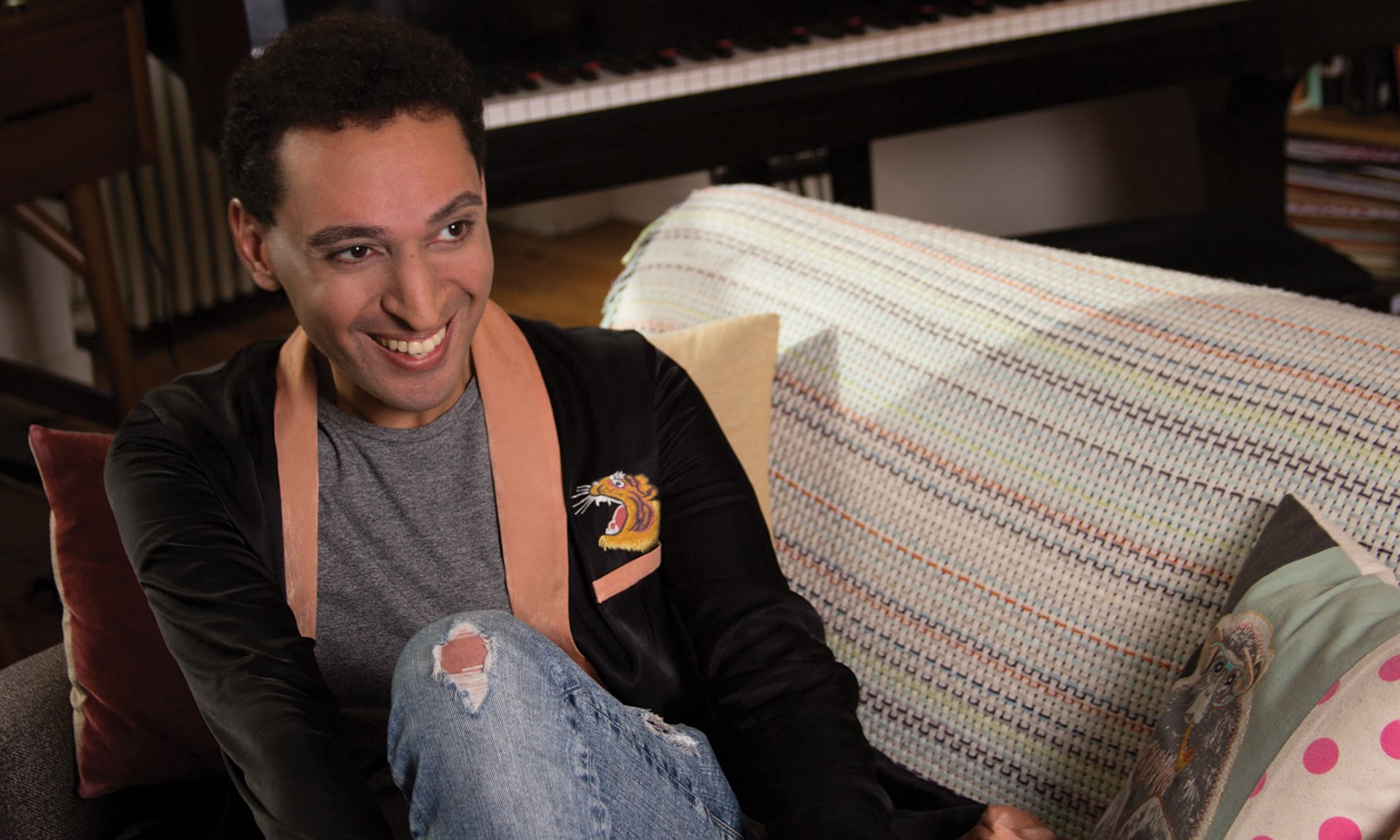 Mohammed Fairouz Mohammed Fairouz, born in 1985, is one of the most frequently performed, commissioned, and recorded composers working today. Hailed by The New York Times as “an important new artistic voice” and by BBC World News as “one of the most talented composers of his generation,” his large-scale works engage major geopolitical and philosophical themes with persuasive craft and a marked seriousness of purpose. Fairouz’s cosmopolitan outlook reflects his transatlantic upbringing and extensive travels. His catalog encompasses virtually every genre, including opera, symphonies, vocal and choral settings, chamber and solo works. As an artist involved with major social issues, Fairouz seeks to promote cultural communication and understanding. Recent major works have included his “grandly ambitious” (Opera News) third symphony, Poems and Prayers interweaves texts of Arab poets Fadwa Tuqan and Mahmoud Darwish, the Israeli poet Yehuda Amichai, and prayers such as the Aramaic Kaddish. His fourth symphony, In the Shadow of No Towers for wind ensemble, about American life in the aftermath of 9/11 premiered in 2013 at Carnegie Hall was described by Steve Smith of The New York Times as “technically impressive, consistently imaginative and in its finest stretches deeply moving.” Fairouz became the youngest composer on the Deutsche Grammophon label to have an album dedicated to his works with the 2015 release of Follow, Poet. The album includes two works that exalt the transformative power of language: his elegiac song cycle Audenesque and the ballet Sadat. The album has met with broad critical acclaim – praised as “captivating” by the New York Times and receiving “highbrow and brilliant” distinctions in New York magazine’s taste-making Approval Matrix.
Mohammed Fairouz Mohammed Fairouz, born in 1985, is one of the most frequently performed, commissioned, and recorded composers working today. Hailed by The New York Times as “an important new artistic voice” and by BBC World News as “one of the most talented composers of his generation,” his large-scale works engage major geopolitical and philosophical themes with persuasive craft and a marked seriousness of purpose. Fairouz’s cosmopolitan outlook reflects his transatlantic upbringing and extensive travels. His catalog encompasses virtually every genre, including opera, symphonies, vocal and choral settings, chamber and solo works. As an artist involved with major social issues, Fairouz seeks to promote cultural communication and understanding. Recent major works have included his “grandly ambitious” (Opera News) third symphony, Poems and Prayers interweaves texts of Arab poets Fadwa Tuqan and Mahmoud Darwish, the Israeli poet Yehuda Amichai, and prayers such as the Aramaic Kaddish. His fourth symphony, In the Shadow of No Towers for wind ensemble, about American life in the aftermath of 9/11 premiered in 2013 at Carnegie Hall was described by Steve Smith of The New York Times as “technically impressive, consistently imaginative and in its finest stretches deeply moving.” Fairouz became the youngest composer on the Deutsche Grammophon label to have an album dedicated to his works with the 2015 release of Follow, Poet. The album includes two works that exalt the transformative power of language: his elegiac song cycle Audenesque and the ballet Sadat. The album has met with broad critical acclaim – praised as “captivating” by the New York Times and receiving “highbrow and brilliant” distinctions in New York magazine’s taste-making Approval Matrix.